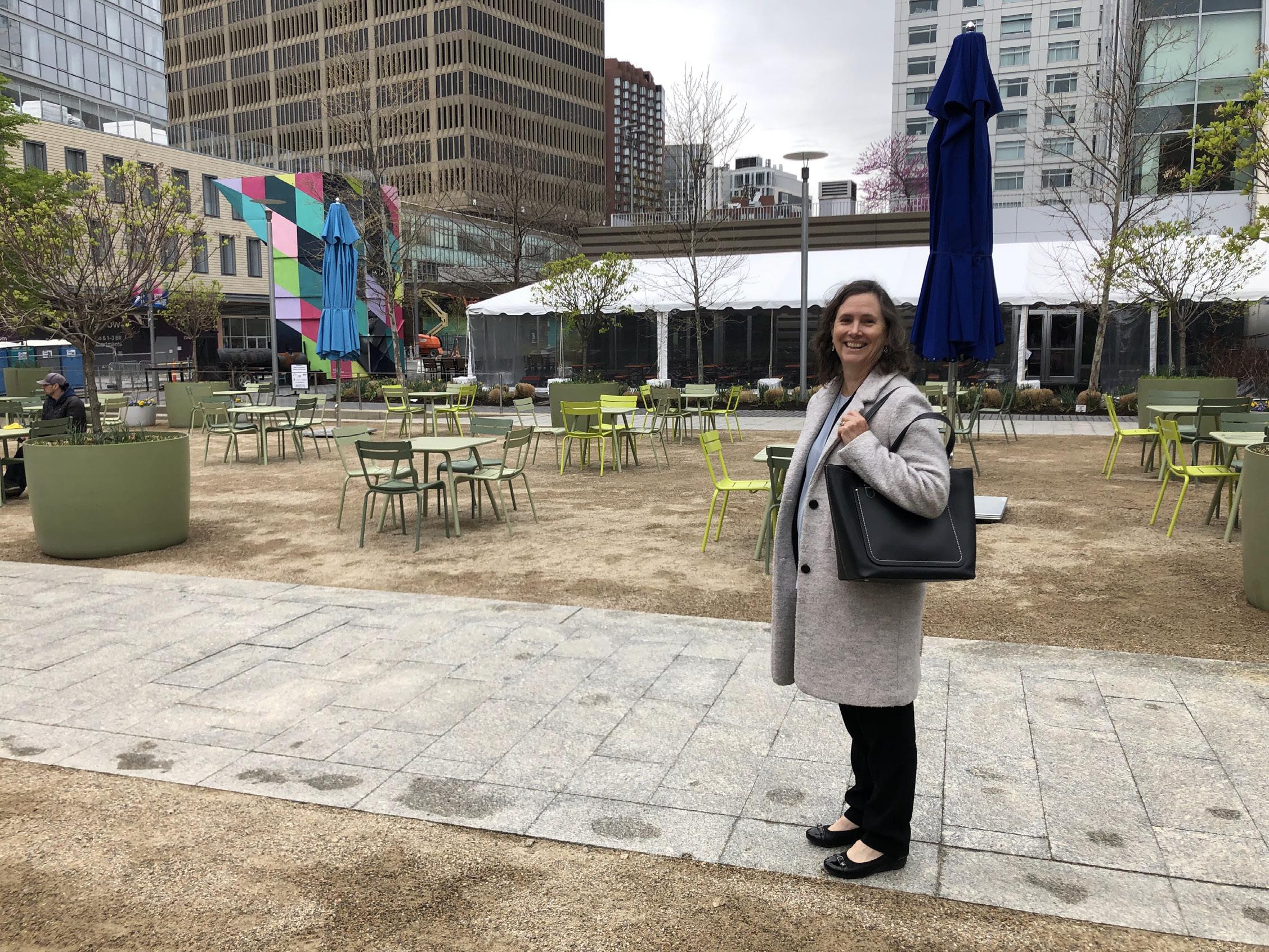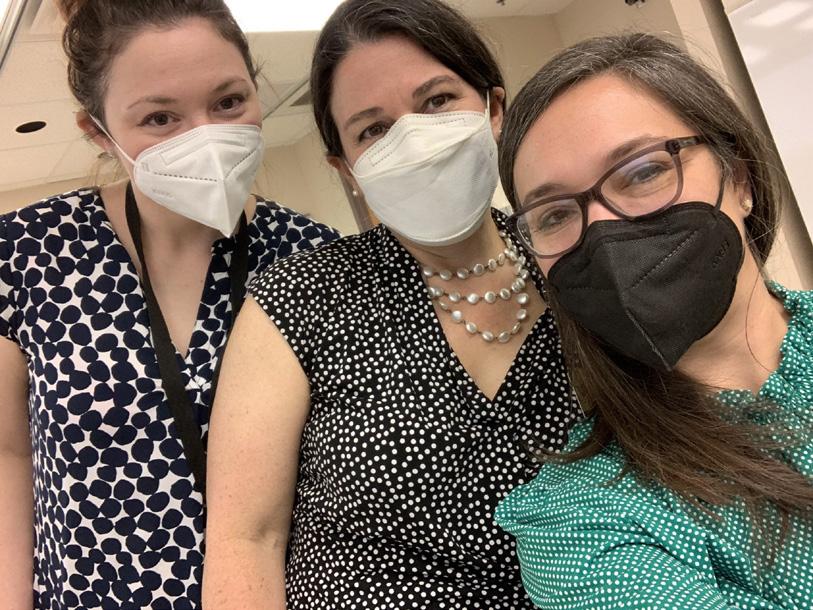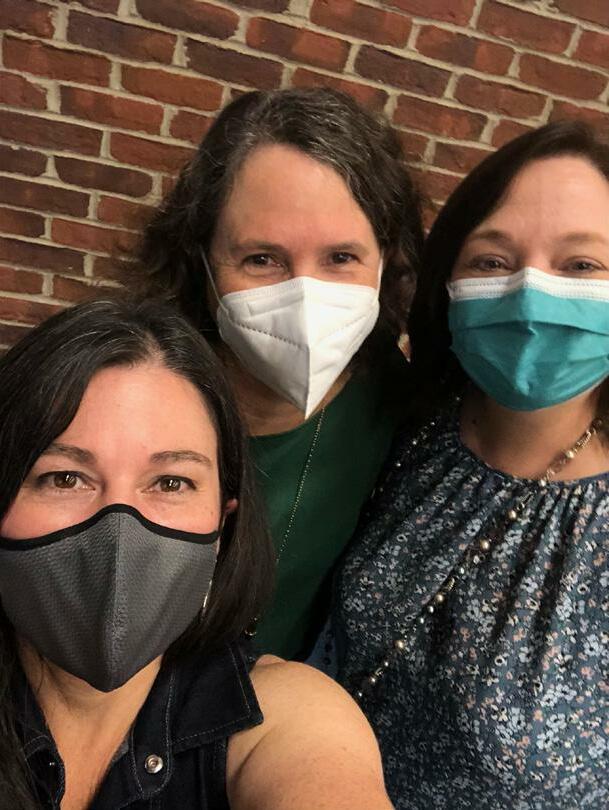




A4-A9
The Biomedical Research Education and Training (BRET) Office of Career Development provides career and professional development enrichment activities for Vanderbilt University School of Medicine and Vanderbilt University Medical Center graduate students and postdoctoral fellows. The office was recognized in 2013 for its commitment to career development for biomedical sciences PhD students and postdocs through a BEST award, a $1.2 million, 5-year grant from the NIH Common Fund. The ASPIRE Program subsequently was awarded two Burroughs Wellcome grants for a business module and a data science module.
Dr. Kathy Gould oversees Biomedical Research Education and Training, Dr. Kim Petrie is Assistant Dean of Biomedical Career Development, Dr. Ashley Brady is Assistant Dean of Biomedical Career Engagement and Strategic Partnerships, Kate Stuart is Associate Director, and Angela Zito is Assistant Director.
ASPIRE Program • Office of Career Development Biomedical Research Education and Training 340 Light Hall • 2215 Garland Avenue • Nashville, Tennessee 37232-0301 bret.career.development@vanderbilt.edu • 615-875-8981
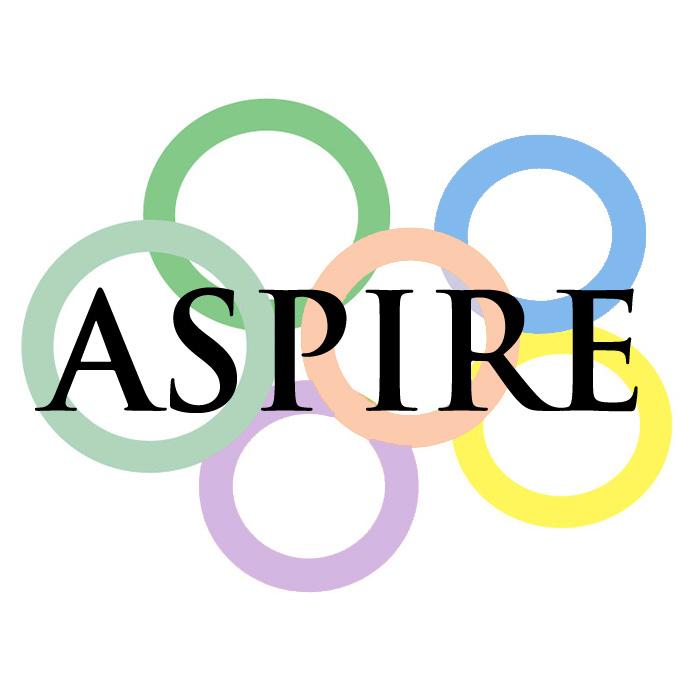
The ASPIRE Program serves PhD students and postdoctoral fellows in the biomedical sciences. Our events are open to the Vanderbilt community, and ASPIRE activities and individual advising are tailored for BRET PhD graduate students and postdocs.
Allergy, Pulmonary, & Critical Care
US Citizens/ Permanent Residents 398
Biochemistry
Biological Sciences
Biomedical Informatics
Biostatistics
Cancer Biology Cell & Developmental Biology Chemical & Physical Biology Epidemiology
Health Policy & Health Services Research
Hearing & Speech Sciences
Human Genetics
Interdisciplinary Graduate Program Microbe-Host Interactions
Molecular Pathology & Immunology
Molecular Physiology & Biophysics Neuroscience Pharmacology
Quantitative & Chemical Biology Program
Anesthesiology Biochemistry
Biomedical Informatics Biostatistics
Cardiovascular Medicine
Cell and Developmental Biology Clinical Pharmacology Dermatology
Diabetes, Endocrinology, & Metabolism Epidemiology Gastroenterology
Genetic Medicine
Health Policy & Health Services Research Hearing & Speech Sciences
Hematology/Oncology Infectious Disease Kennedy Center Molecular Physiology & Biophysics Nephrology Neurological Surgery Neurology Obstetrics & Gynecology
Opthalmology & Visual Sciences Orthopaedic Surgery & Rehabilitation Otolaryngology
Pathology, Microbiology, & Immunology
Pediatric Cardiology, Endocrinology, Gastroenterology, Infectious Disease, & Nephrology
Pharmacology Psychiatry
Radiology & Radiological Sciences Rheumatology & Immunology Surgery
Surgical Sciences
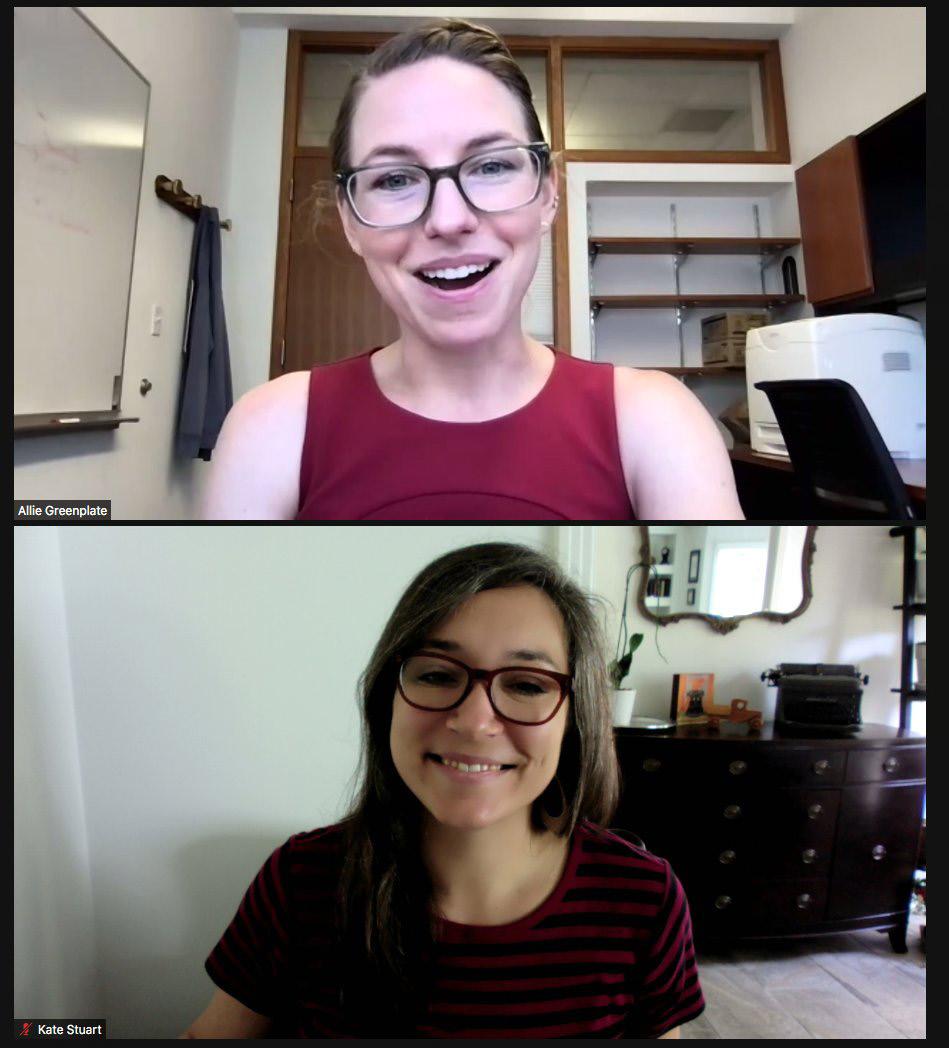
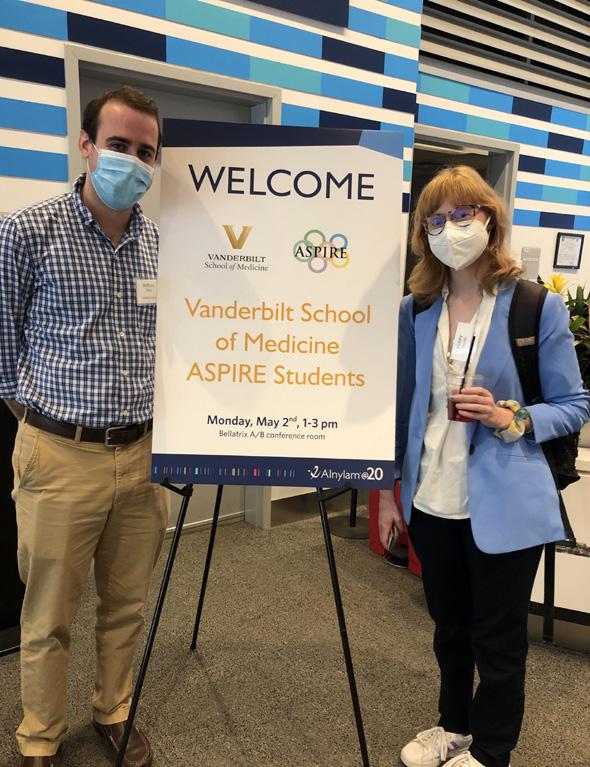
Above, Molly Altman, PhD, shares about her role while serving as a panelist for Sarah Cannon Research. Right, Dan O’Brien, PhD, shares about his role as a Scientific Director with AbbVie. Below, Sarah Petersen, PhD, discusses her work teaching on the college level at Kenyon College.
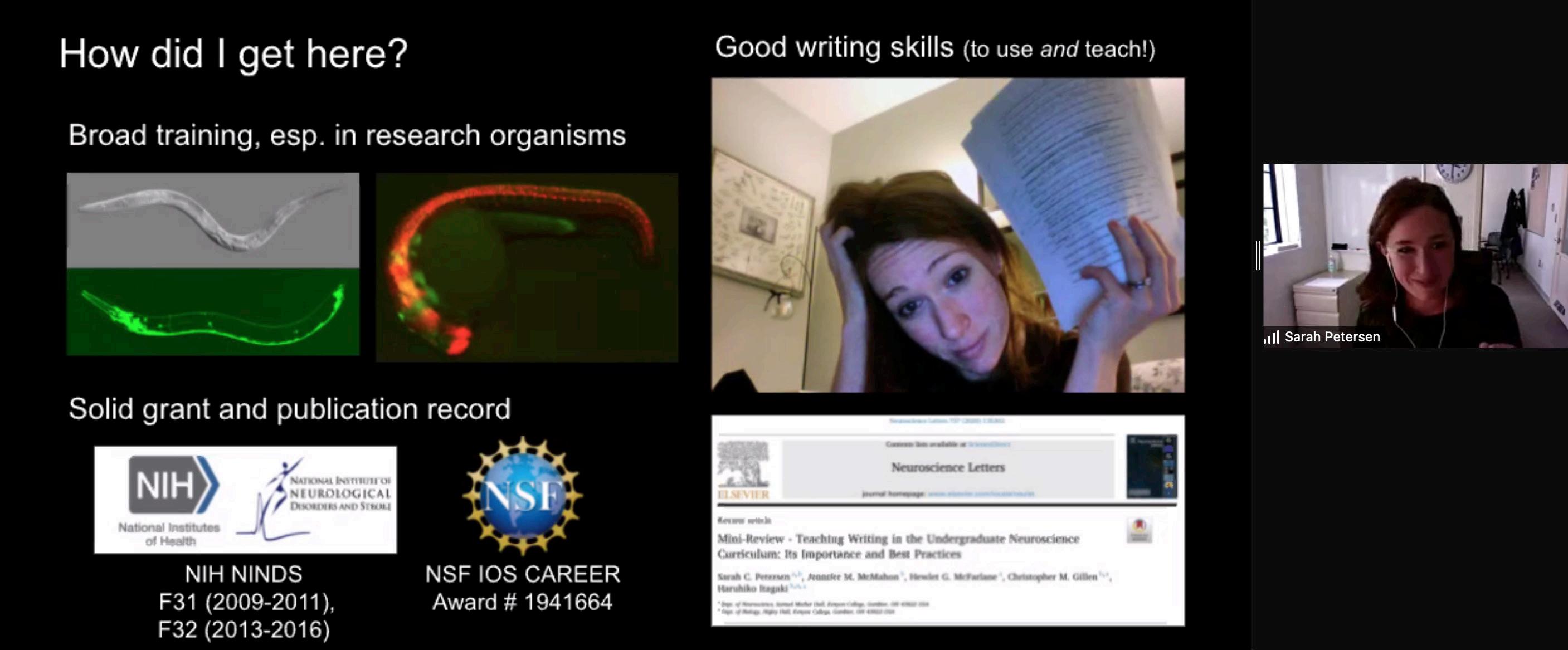
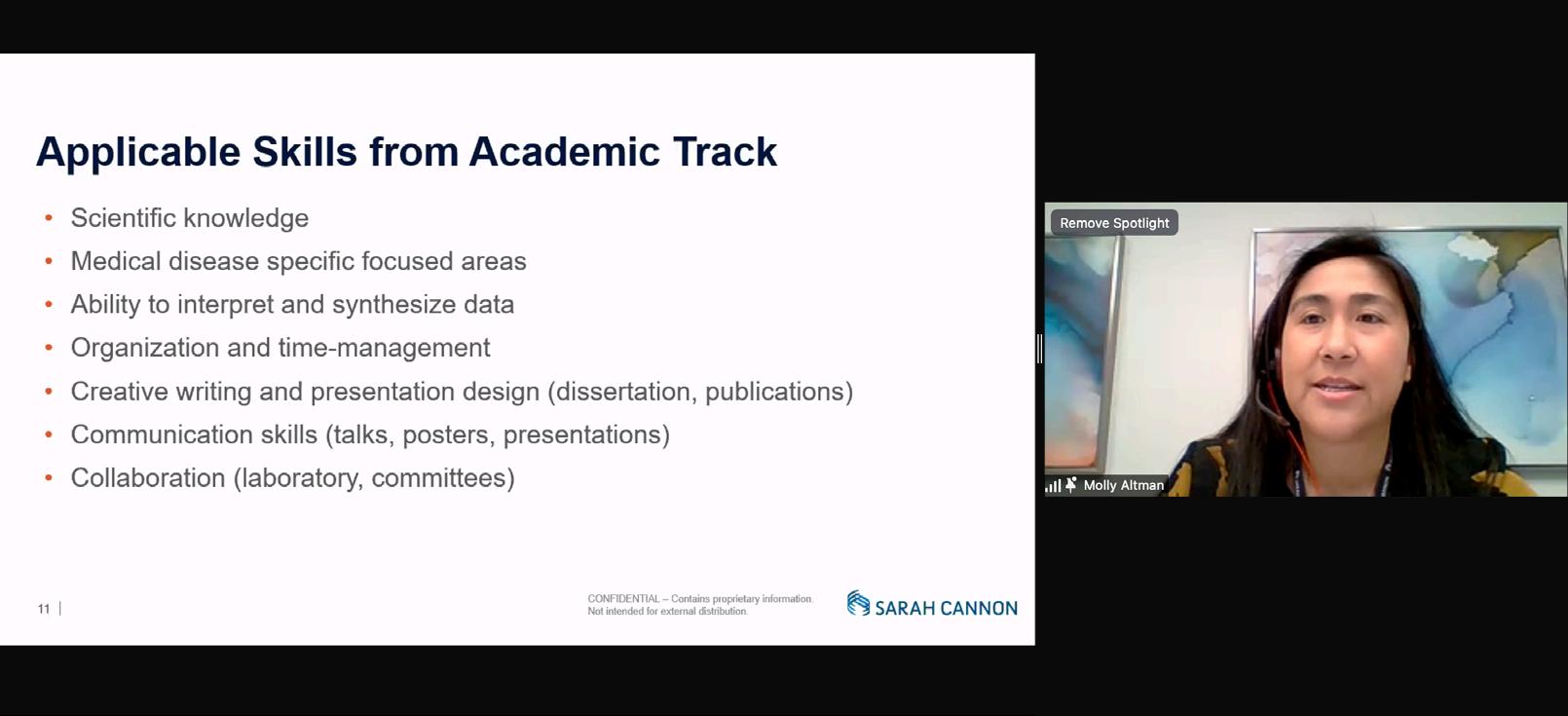
PhD Career Stories continued the monthly career exploration offering through virtual events, allowing a diverse group of speakers from different states... and different countries!

In the spring of 2018, the ASPIRE Program launched an initiative called ASPIRE on the Road to give graduate students and postdoctoral trainees an up-close look at careers in the biopharma industry. Ten trainees traveled to Boston for the inaugural program to site-visit companies and network with alumni. Building on the success of that program, twelve trainees flew to San Diego for a similar experience in 2019. In the spring of 2020, a return trip to Boston was planned for the 3rd annual ASPIRE on the Road when the COVID-19 pandemic forced the ASPIRE team to cancel the trip.
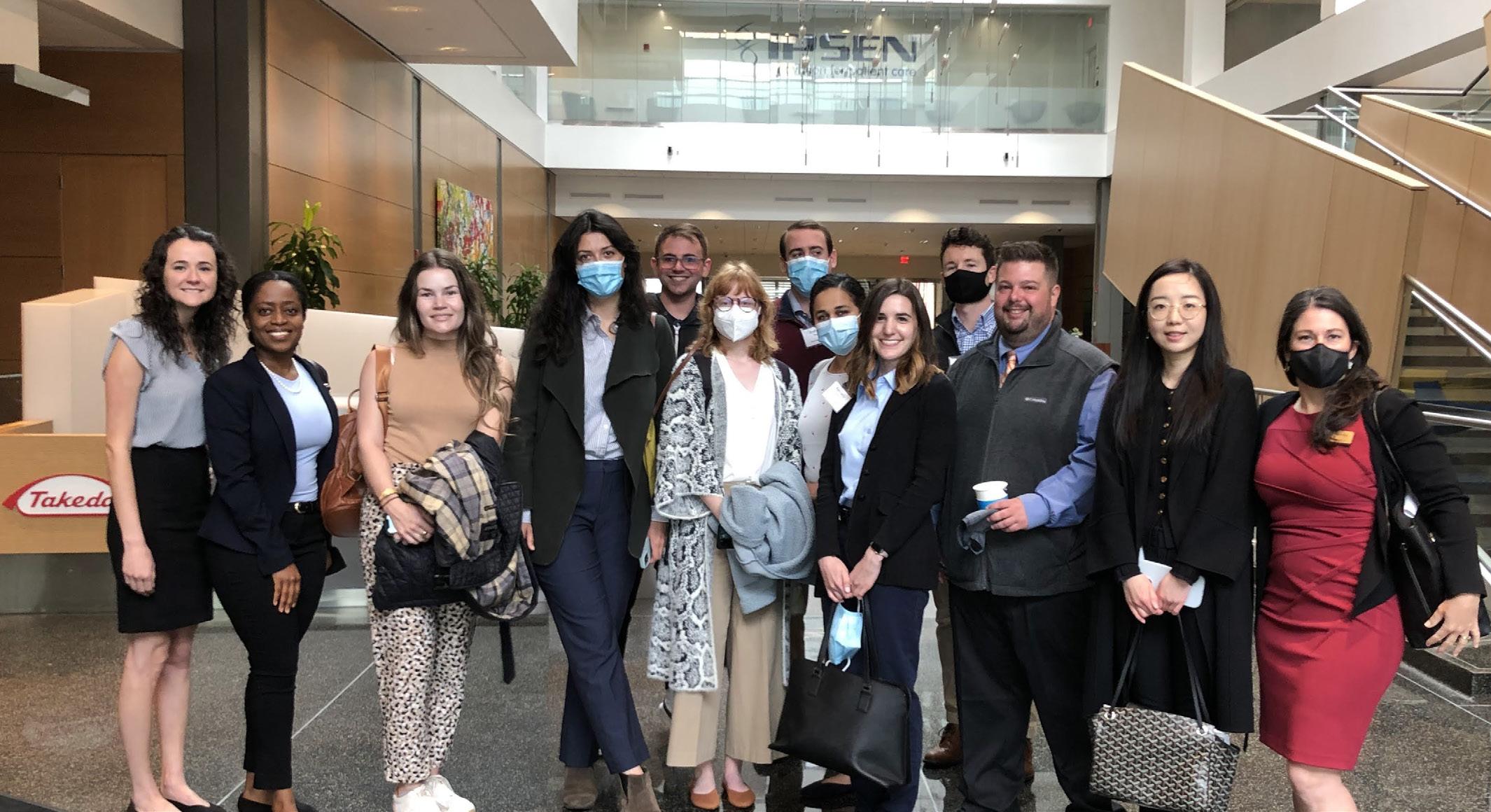
With a nearly two-year lapse of “in-person” networking opportunities due to the COVID pandemic, trainees were eager for a chance to make up for lost time preparing for their next career steps. As a result, nearly 40 applicants applied for the opportunity to travel to Boston for the May 2-4, 2022 trip. I was fortunate enough to be selected, along with eleven other graduate students and postdocs, to participate in this year’s program. Ashley Brady, PhD, Assistant Dean for Biomedical Career Engagement and Strategic Partnerships, our fearless leader and organizer of the trip, created an itinerary filled with visits to biotech and pharmaceutical companies in the heart of Kendall Square ranging from fewer than one hundred employees, like Ikena Oncology, to some with thousands, such as Novartis.
After arriving in Boston early in the morning, our first visit was a quick ten-minute walk to Alnylam, a mid-sized biotech company focused on RNAi therapeutics. Arun Skaria, MBA, Director of Corporate Social Responsibility, organized our visit and welcomed us to the company. We heard from several of the leaders in the company who shared details of the company’s origins in treating rare diseases stemming from genetic disorders and its future in targeting more complex diseases such as those of the cardiovascular and central nervous systems. Afterwards, we broke out into discussion groups with Alnylam employees including Vanderbilt alumnus Jon Farley, PhD. We concluded our visit with a tour of the lab space and demonstrations of the extensive automated equipment that makes their work possible.
The afternoon included a walking tour of the area with the Kendall Square Association. The association advocates for more community spaces within Kendall Square to make the area more accessible and welcoming to those outside the biotech community. They have encouraged the building of public green spaces and installation of art throughout the neighborhood. We then took the train to an Italian restaurant and ended the day with cannoli. I highly recommend getting two!
For our first full day in Boston, the morning was spent
learning about some of the infrastructure that exists to support the biotech and pharma ecosystem in the area. We met with the site director for a tour of the Ipsen Innovation Center Biolabs, which acts as an incubator space for biotech startups. A company will pay rent for bench and office space, which includes other privileges like shared equipment and resources and networking opportunities with investors. It was fascinating to see the logos of all the companies currently housed in the center and the “graduated” companies who have moved on to larger spaces that are all displayed on the walls outside the lab. After learning about opportunities for new biotech companies to secure lab space and support, we visited the Massachusetts Biotechnology Council or “Mass Bio”, whose mission is to advocate for and grow the life sciences industry in the state. Mass Bio provides opportunities to become involved in the biotech community no matter your formal training. They host education and outreach programs, plan conferences and networking events, and work with policy makers to ensure the health of the biotech community.
That afternoon, we visited the Novartis Institutes for Biomedical Research (NIBR) and heard from several alumni about their research, career paths, and life in Boston. Some alumni presented their current research highlighting how different departments collaborate to make large scale projects move forward. As compared to some of the smaller companies we visited, the scientists at Novartis seemed to have a more specialized role within each department. To wrap up our visit, we toured the modern research building, which has an impressive footprint given the scarcity of land and cost of space in Kendall Square.
Thursday evening was the Vanderbilt Alumni happy hour at Za Cambridge. Over 60 Vanderbilt alumni attended. I met two alumni who were roommates during grad school and members of the first class of the Interdisciplinary Graduate Program (IGP). I was also able to catch up with many recent graduates just starting their new jobs in Boston. Everyone I met offered to look over my CV or put me in contact with hiring managers at different companies. I am grateful to have such a supportive network as I look forward to graduating and job hunting in the next year. I ended the day exhausted but excited about the expansive number of opportunities available for biotech research.
The next morning, our first visit was with Karuna Therapeutics. We were welcomed by Tim Xu, MD, Senior Director, Business Development, Search & Evaluation, into a modern glass conference room filled with goody bags of Karuna swag including a mug and a baseball cap. While eating breakfast, we heard from Chris Aluise, PhD, Senior Scientist, Discovery Program, on the role of toxicology in the drug development process as they are shepherding several compounds through preclinical and clinical trials for the treatment
Opposite page, the graduate students and postdoctoral fellows stand with Ashley Brady, PhD, as they prepare for a day of adventure in Boston. Below, four ASPIRE on the Road participants display theis Karuna Therapeutics swag caps.
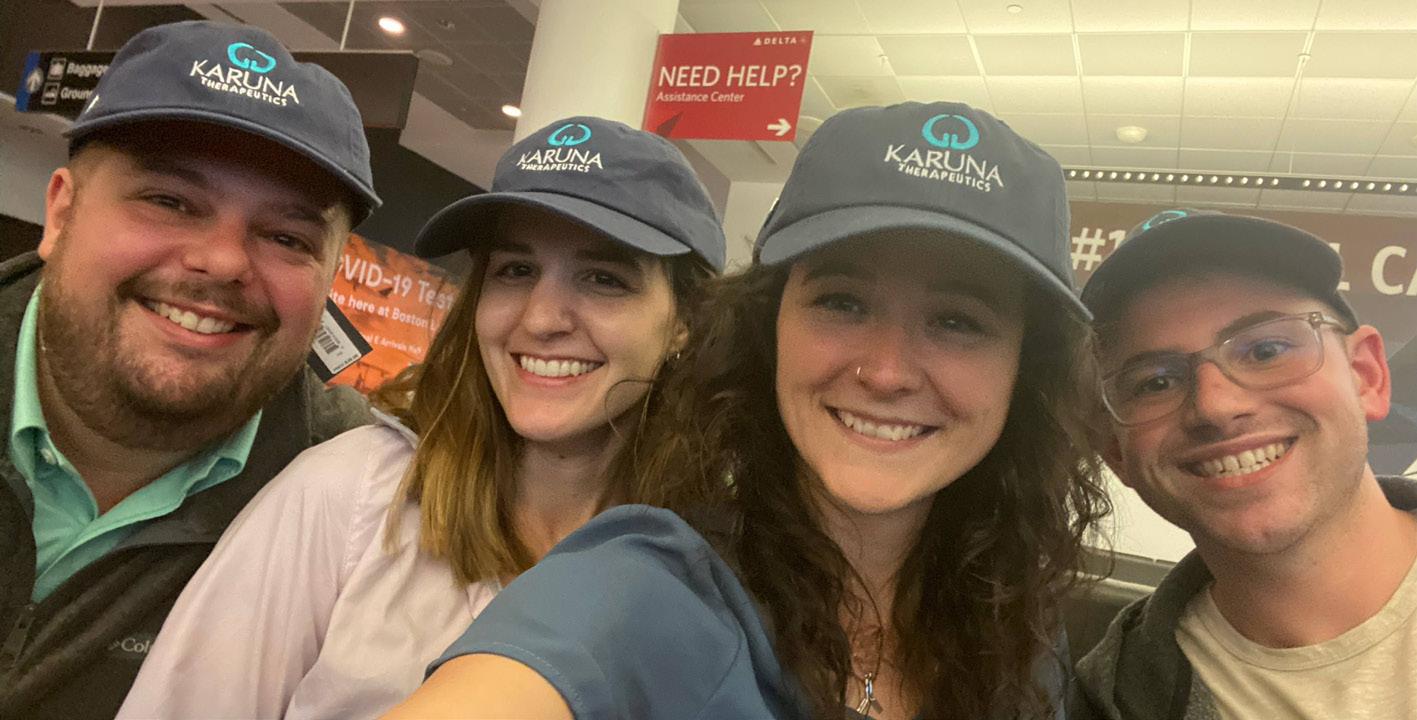
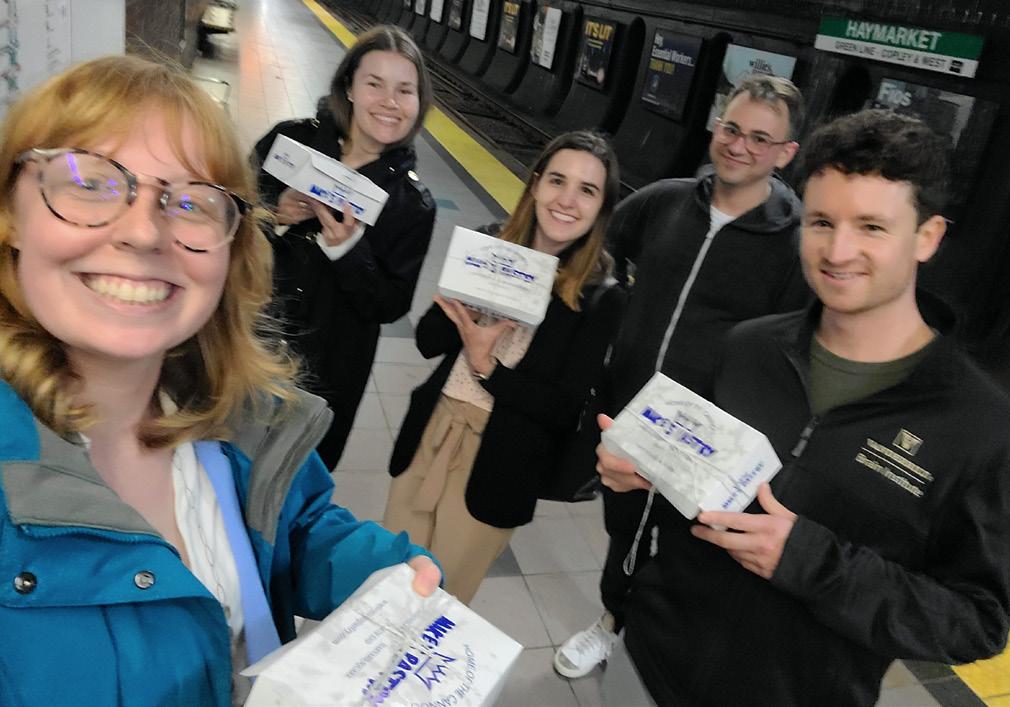
Above, authentic Boston cannoli was obtained after a long day of site visits. Below, trainees embark on their tour of Kendall Square, with one stop at the Broad Institute.
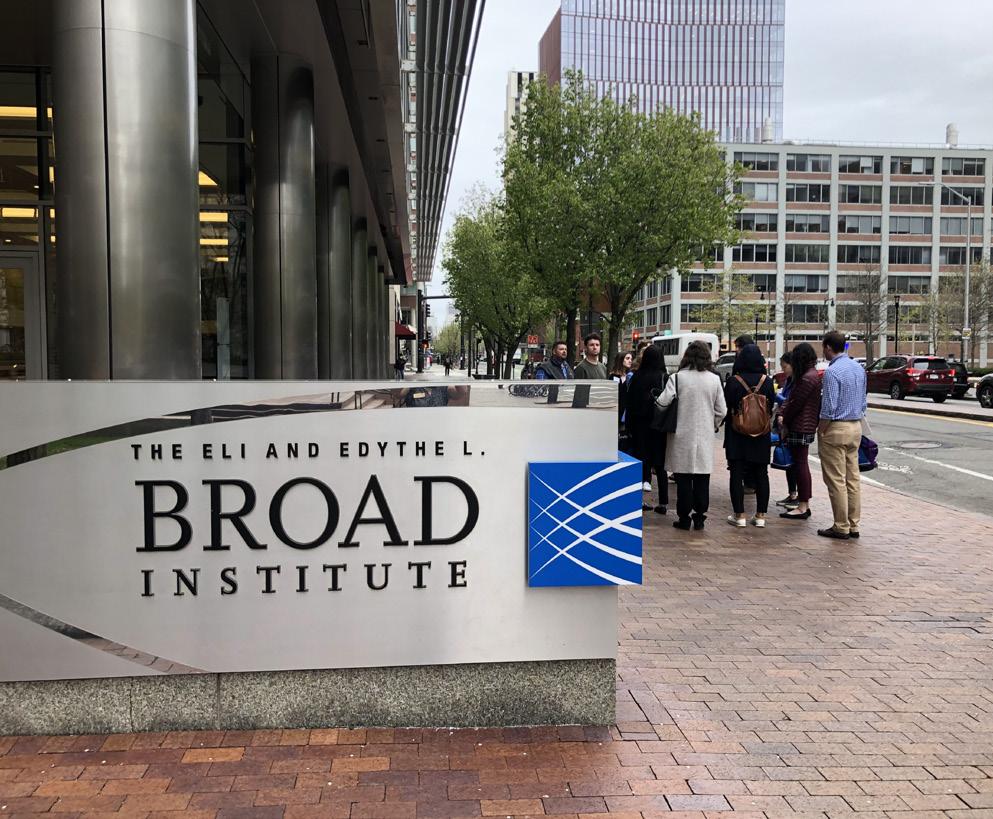
of psychiatric and neurological conditions. We then spoke with president and CEO Steve Paul, MD, about the history of Karuna Therapeutics and the many companies he has founded and grown as a serial entrepreneur. To wrap up our time at Karuna, we gleaned insights into interviewing well from HR representatives. They mentioned asking questions about the onboarding process, how disputes are handled, how company values were developed, and opportunities for cross-functional collaboration during the interview process.
We headed on to our last tour of the trip at Ikena Oncology, a small startup company whose strategy to create new cancer therapeutics is to study and target signaling pathways often mis-regulated in cancer, rather than targeting a specific type of cancer. We learned about tools like QSAR and Derek Nexus, which leverage computational predictions to predict biological activity of small molecules and mutagenicity, respectively.
Upon wrapping up the visit, Corey Bown, PhD, a neuroscience graduate student who recently accepted a position as Data Scientist at Abbvie in Chicago, noted that “all of the representatives from the companies we met with
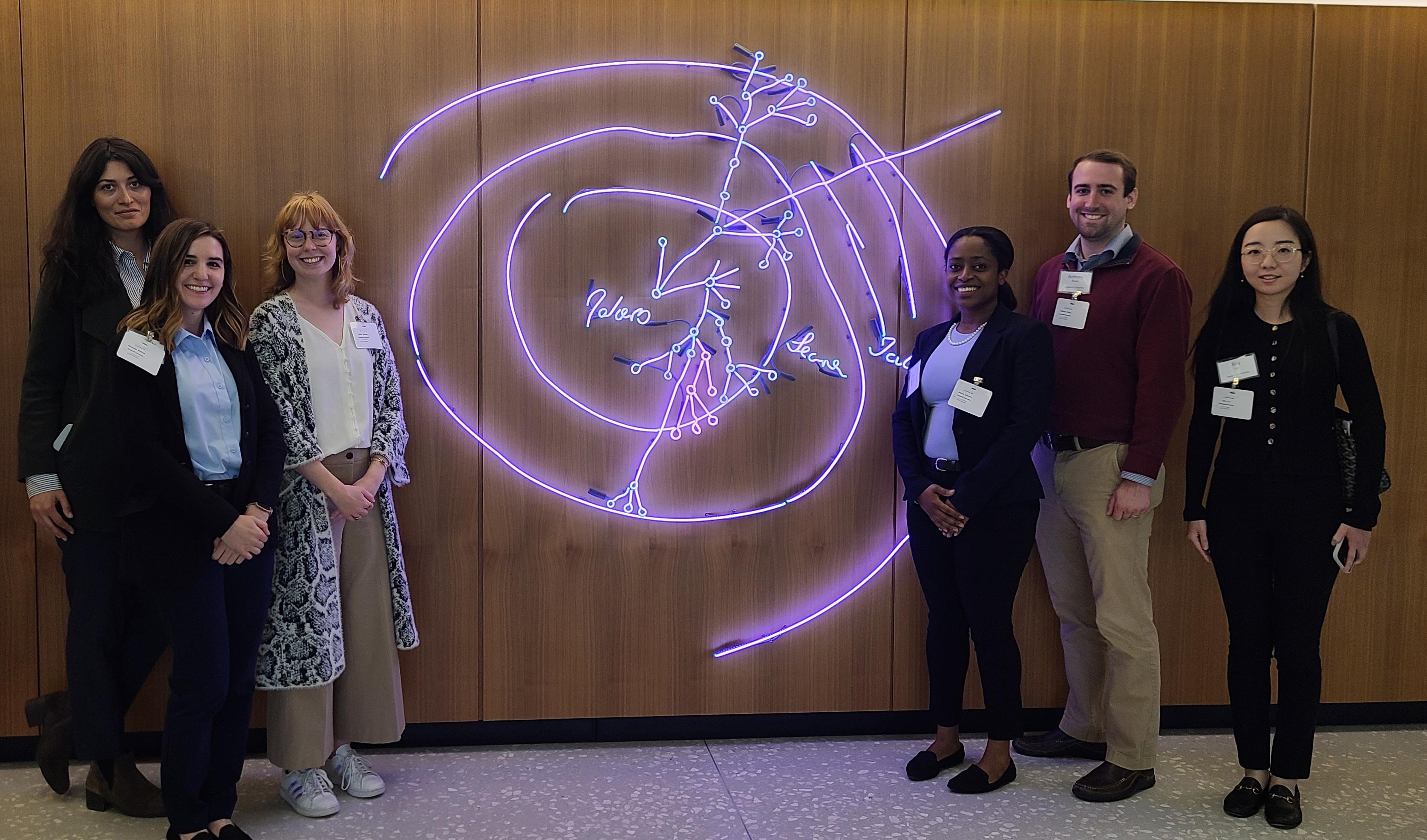
were so welcoming and passionate about introducing the next generation of scientists to the biotech industry.”
While traveling to the airport to head back home to Nashville, we discussed our favorite parts of the trip and when we expect to graduate. Kateki Katdare, a current graduate student also in neuroscience, shared “it was great to see old mentors and make new connections all of whom were so kind and willing to share their journey through the biotech world. The many industry visits only highlighted how passionate and involved each team is in tackling their scientific question and making newer therapeutics a reality. This trip has truly reaffirmed my decision to pursue an industry career.”
I echo these sentiments. The trip gave me more confidence in my ability to assess workplace culture and identify companies with an environment that best suits my strengths. I also have a greater awareness of the research and scientific advances being discovered in the biotech industry. I look forward to joining our alumni network soon and continuing my scientific growth as a member of the biotech community.
Above, the neon light display of the scribblings from Charles Darwin’s notebook filled the walls of the NIBR building. Right, participants begin their tour at Ipsen Biolabs.
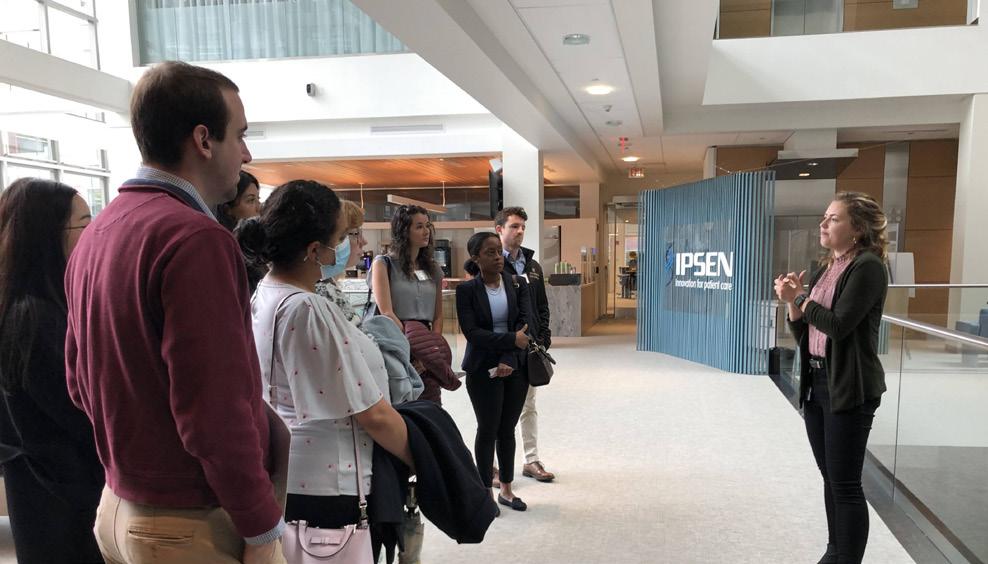
For the 25th time in BRET history, the Annual Career Symposium was held to celebrate and explore the many career options a biomedical science trainee can pursue. This year on June 2, 2022, the event was filled with speakers and sessions throughout the day, but on Zoom once again! It was a day full of insightful career perspectives and valuable advice.
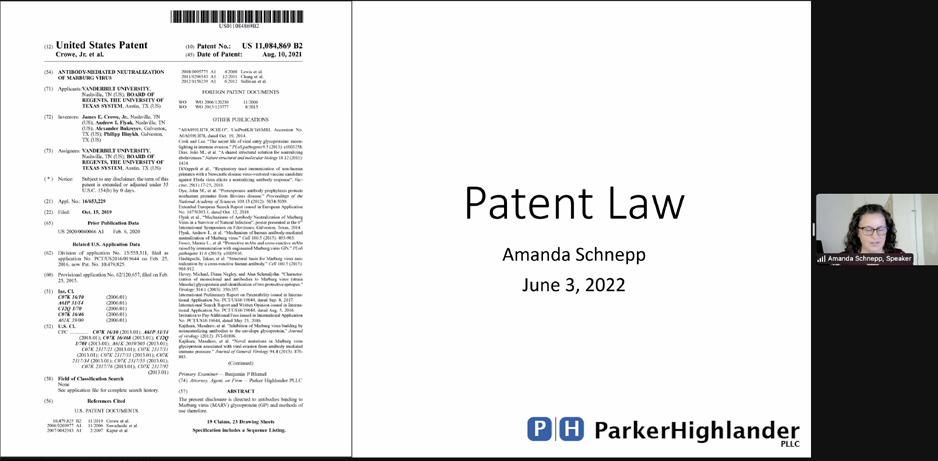
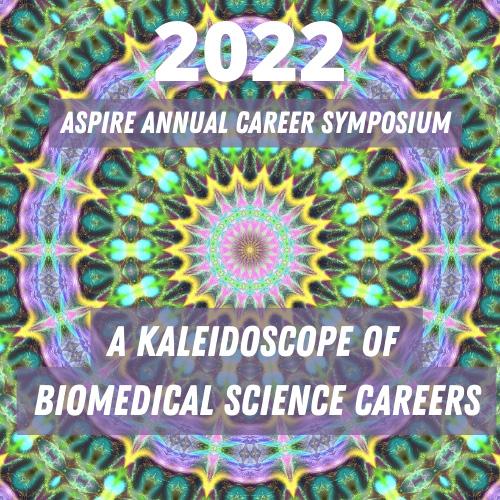
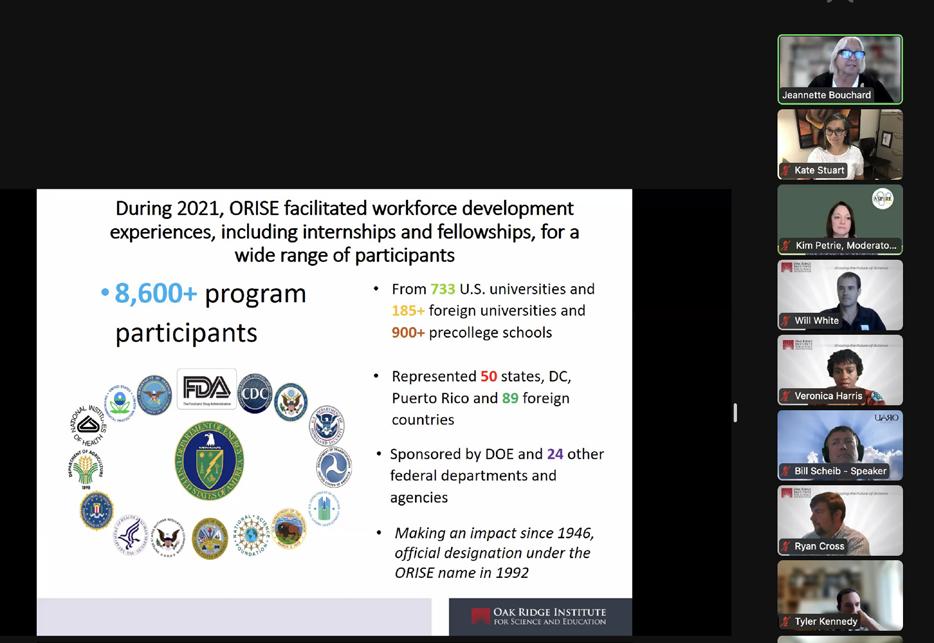
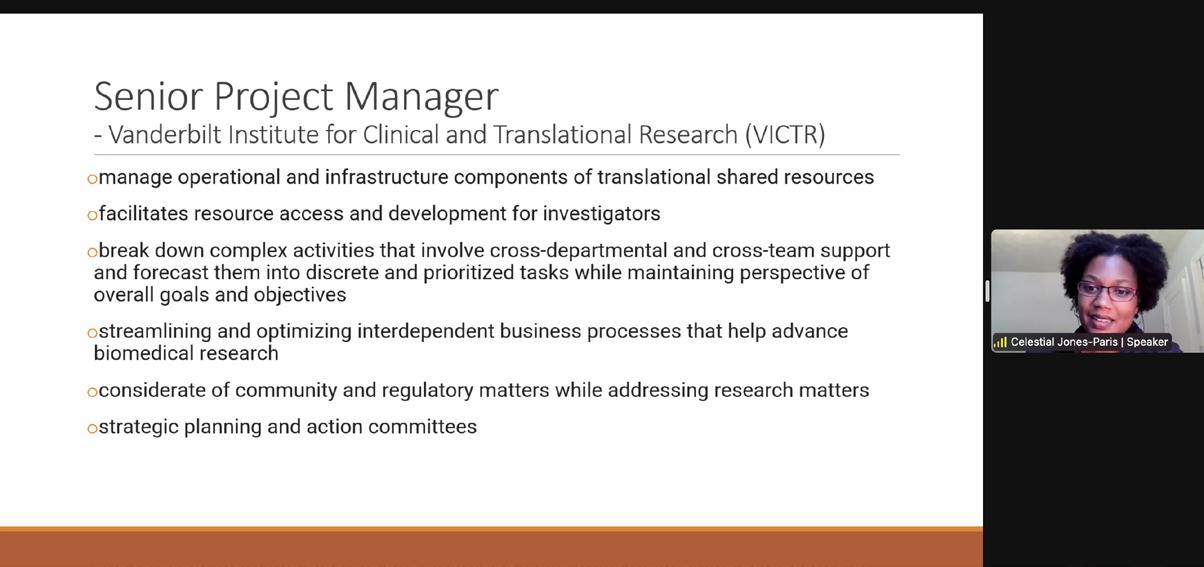
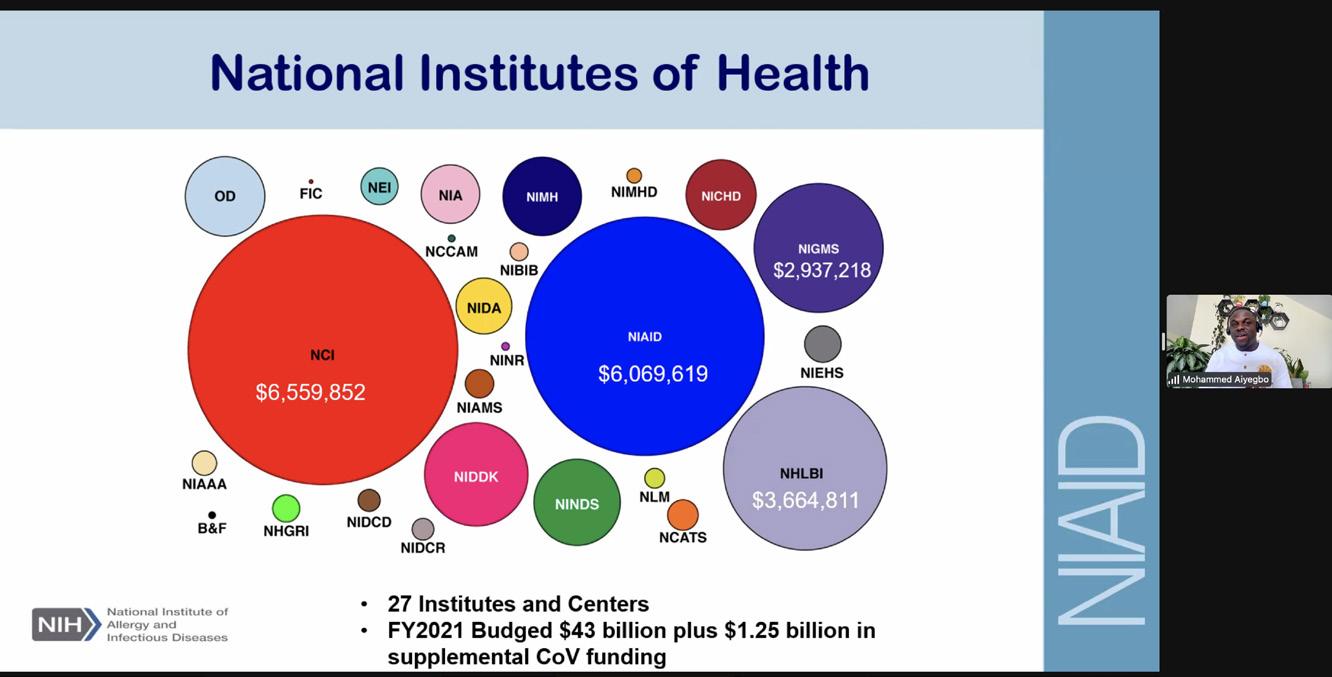
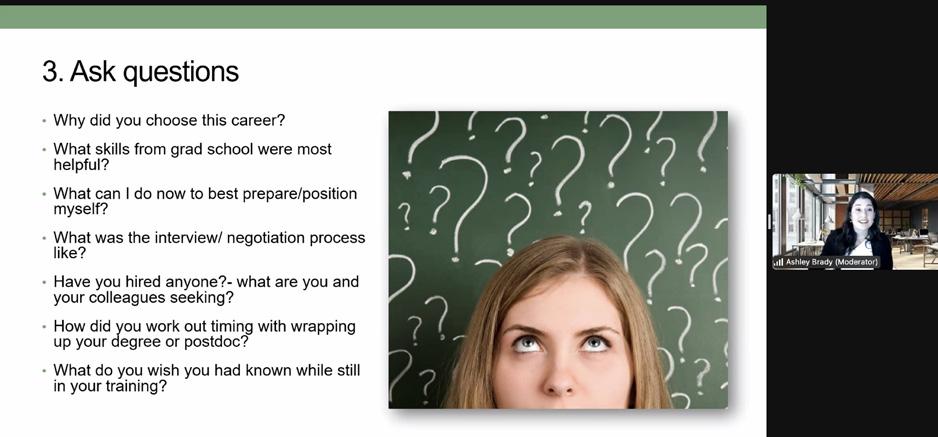
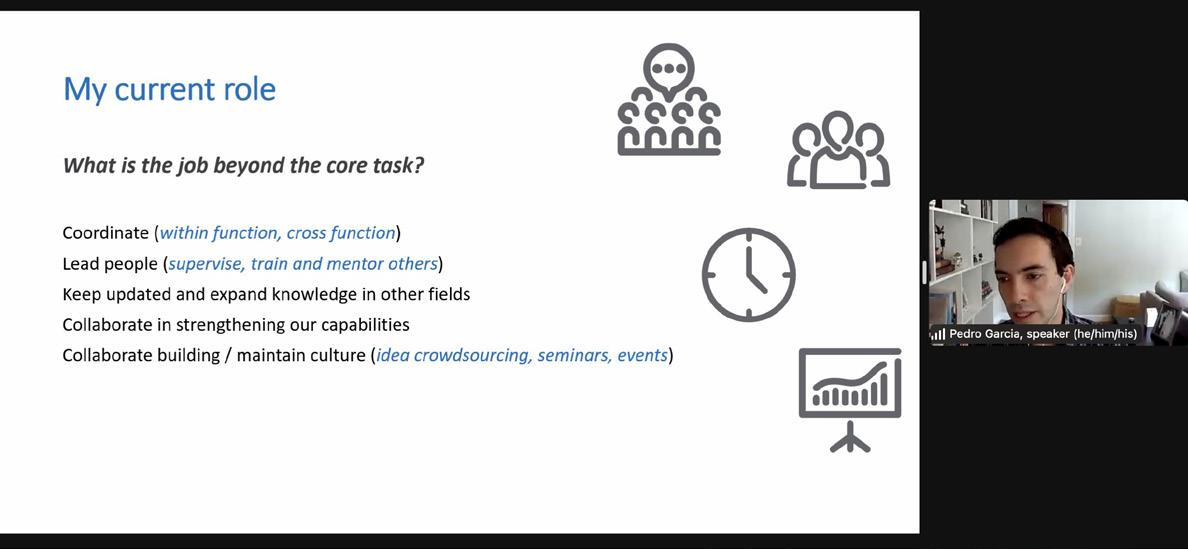
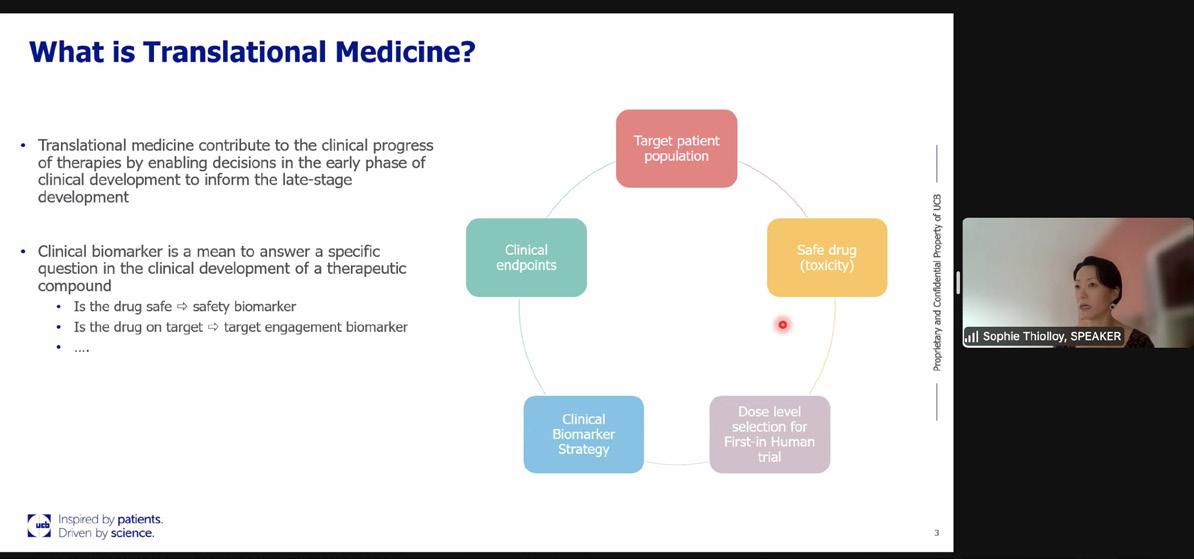
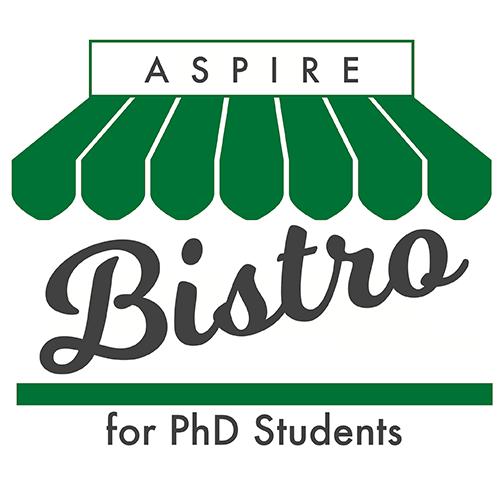
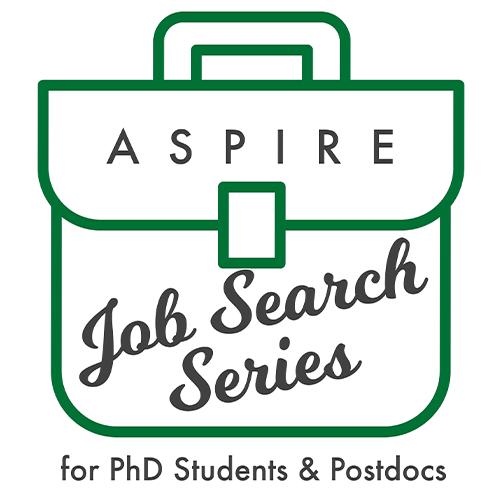
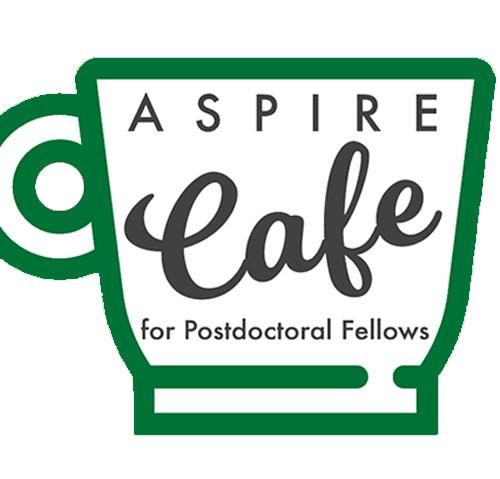
Skill-building, networking, negotiating, and managing a professional image are important aspects of a trainee’s professional development. Our workshops, seminars, modules, and informal cafés help equip trainees for the next step in their career path.
Trainees in the Biomedical Research and the Media module wrote articles for the VUMC Reporter to gain writing experience and build their portfolio.
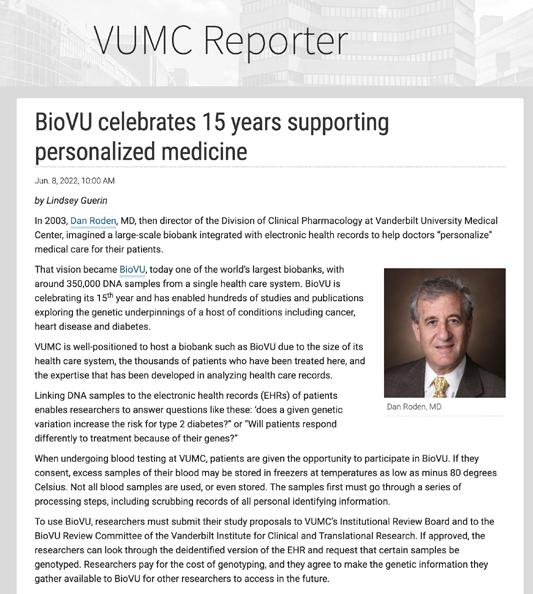
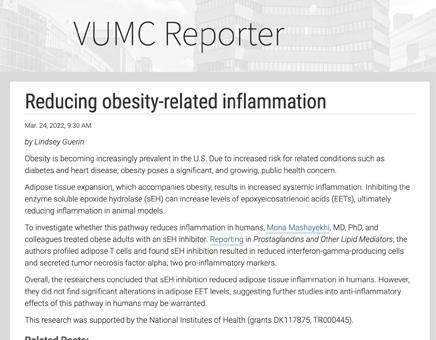
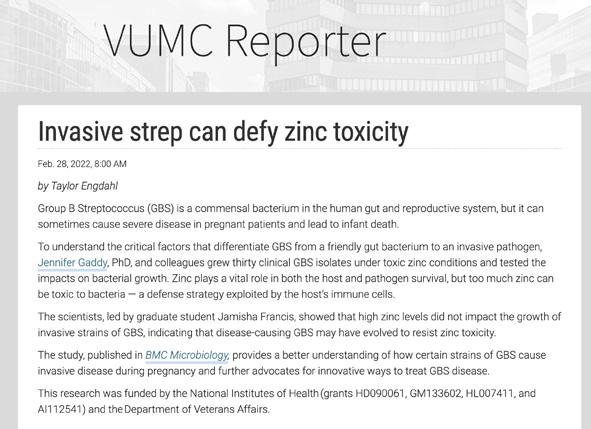
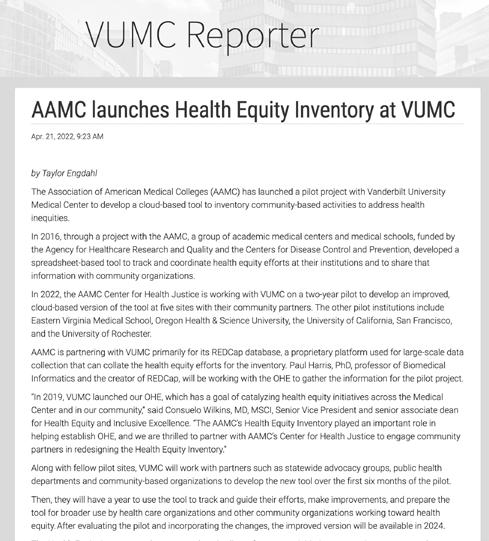
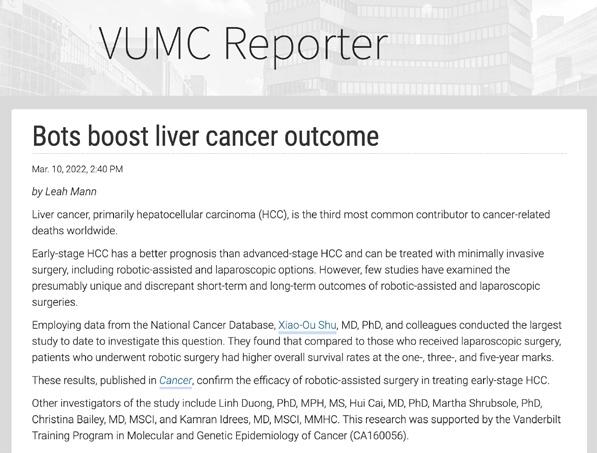
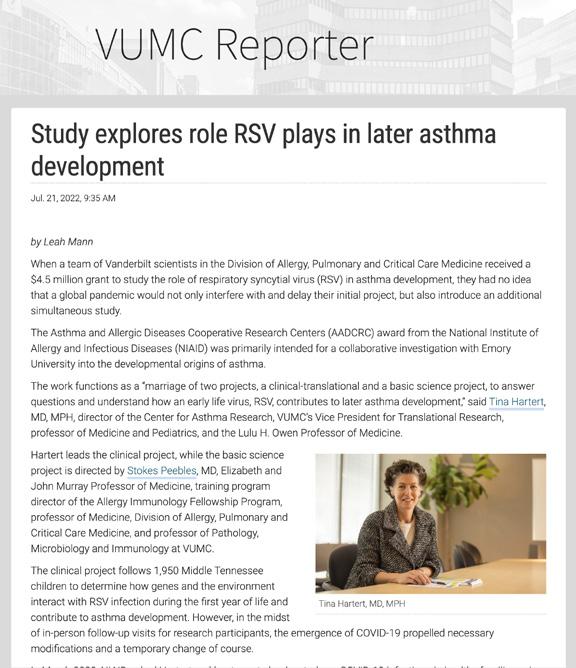
The BRET Office of Career Development’s ASPIRE Program hosted its second annual Mock Interview Day on March 28, 2022. Although this year’s platform looked different than that of the first Mock Interview Day held prior to the COVID-19 shutdown, the event was nevertheless an undeniable success that embodied the ASPIRE model of professional development.
Several years ago, Angela Zito, Assistant Director of the BRET Office of Career Development, first conceived the idea for Mock Interview Day based on mock interview relays hosted by Vanderbilt’s Peabody College of Education and Human Development. During this training event students are connected with area employers and alumni for advice on interviewing and networking skills. Collaborating with Dr. Kim Petrie, Assistant Dean for Biomedical Career Development, Zito adjusted the Peabody model to make it more suitable and effective for biomedical PhD students and postdocs.
Unlike the first Mock Interview Day, which recruited local Nashville employers and alumni in diverse careers as interviewers, this year’s event was intentionally focused on interviewers working in industry R&D. The day commenced with a keynote lecture from alumnus Larry Thompson, PhD, Senior Principal Scientist at Pfizer. During his presentation, “From Academia to Industry, How to Break on Through to the Other Side,” Dr. Thompson shared his unique experience as both an interviewee and interviewer.
Dr. Thompson emphasized practicality and strived to “acknowledge the difficulties that people go through when transitioning from academia to industry.” He discussed the differences between academic and corporate research environments, and the ways in which to break down barriers through networking, interview skills, and job searches. His best recommendations for preparing for interviews included (1) employing the STAR method for answering questions, which involves considering the situation, task, action, and result of a situation or challenge, (2) ensuring that one knows everything mentioned in his or her resume, and (3) preparing good questions to ask the interviewer.
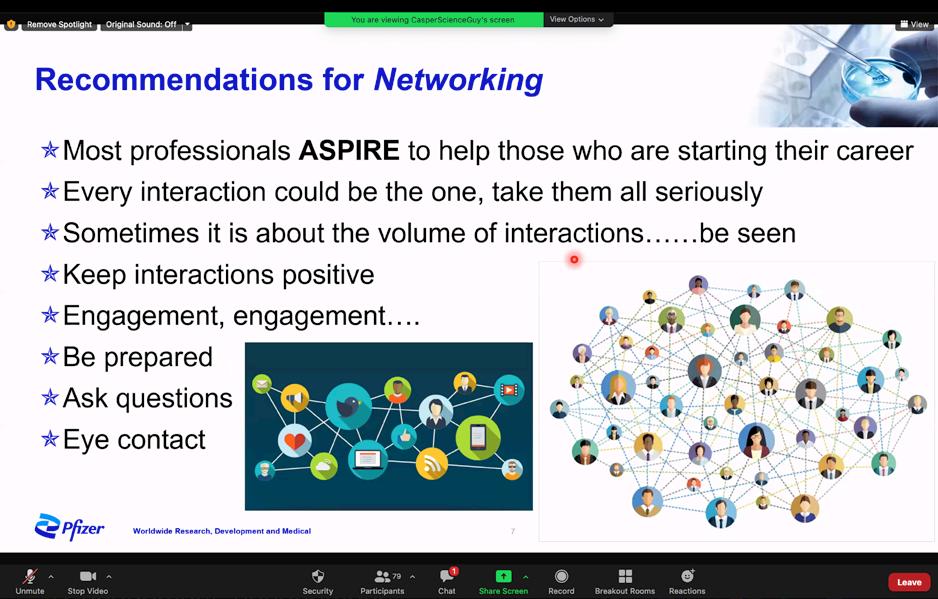
Following this talk, a Q&A session with a panel of recently hired Pfizer employees provided attendees with a rare opportunity to receive insights about the interview process. Timothy Thoner, a PhD student, noted that this
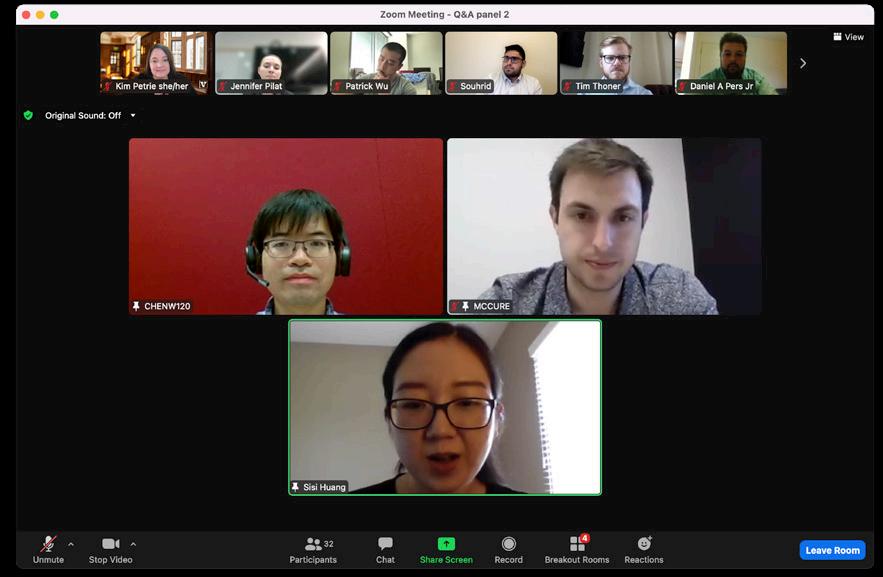
session with the Pfizer hires gave him access to beneficial information that he would not typically come by in a different setting.
Trainees were then matched with interviewers for up to three mock interviews. Interviewers aimed to conduct sessions in a manner similar to genuine interviews, asking both technical and behavioral questions, and allotting additional time for questions, feedback, and guidance. Alexandra Blee, PhD, a postdoctoral fellow, participated in the event to familiarize herself with the nature of questions she could face. She found that the seminars prior to the event and the event itself provided her with valuable feedback and advice on interview and job search preparations.
In addition to engaging current Vanderbilt University and Vanderbilt University Medical Center students and postdocs, the event, especially with its virtual platform this year, was a compelling way to include alumni in ASPIRE programming. While the event boasts numerous benefits, students found that one of its key strengths was the opportunity to build connections with alumni in industry. The cornerstone of Mock Interview Day is its ability to bring real-world experience to trainees, typifying the career and professional development goals of the ASPIRE program.
Top, keynote speaker and alumnus Larry Thompson, PhD, delivers opening remarks at the 2022 Mock Interview Day. Bottom, Pfizer employees discuss interviewing strategies and answer questions in breakout rooms.The ASPIRE Program maintains many relationships with external graduate level career development organizations at the local and national level:
The Graduate Career Consortium
Burroughs Wellcome Fund Life Science Tennessee Nashville Software School
Career and professional development trends and best practices are constantly evolving. To continue to provide outstanding services and remain at the forefront of graduate and postdoctoral career development, we cultivate partnerships and participate in professional organizations to share our work.

• Governance Committee Member, Graduate Career Consortium
• Invited Reviewer, pd|hubProfessional Development Hub
• Conference Planner, Leadership Alliance Annual Career Development Conference
Above, the annual Graduate Career Consortium conference brought together universities from all over the world to discuss career and professional development, this year from San Francisco. Left, Ashley Brady, PhD, and Jan Varadarajan, PhD, snag a selfie between sessions at GCC.
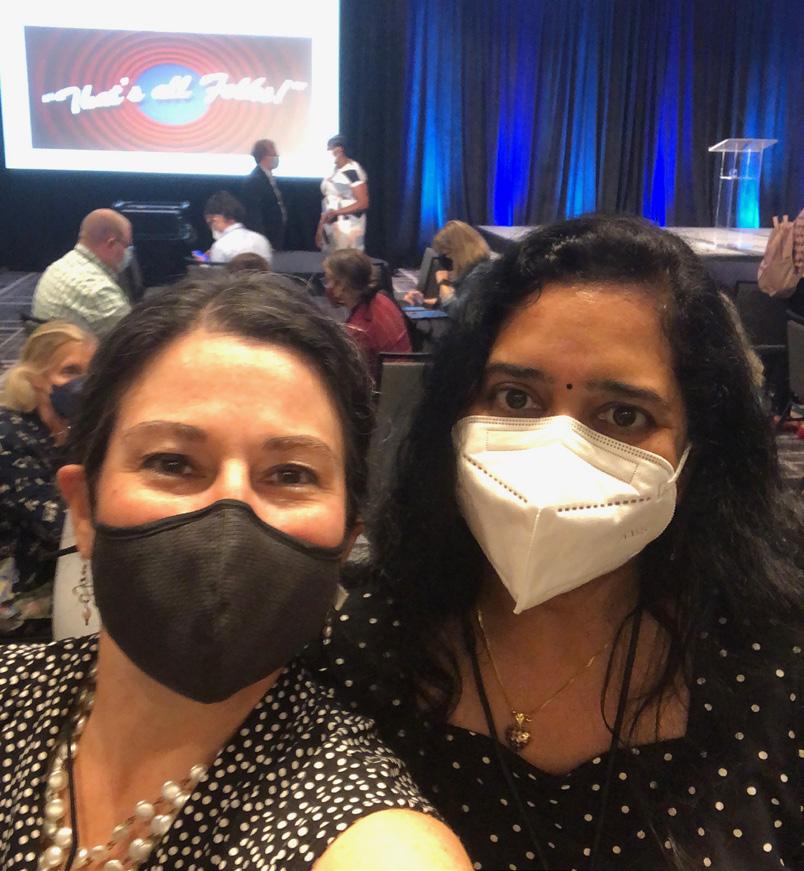
The ASPIRE Program is now awarding badges through Badgr to graduate students and postdoctoral fellows who fully complete any of our ASPIRE modules or other experiential learning opportunities. The micro-credentialing program launched in the spring of 2021 through a partnership with the VU Process and Systems Implementation team, helping the ASPIRE Program to achieve a long-time goal of tracking trainee progress and supporting them in capturing and highlighting their professional development efforts outside of the lab. These badges can aggregate and shed light on the interests, capabilities, and accomplishments of learners; moreover, they can serve as the stepping stones, guiding trainees along a learning pathway.
Badges are a visual symbol of achievement with embedded metadata about the learning experience. The metadata includes badge issuer, recipient, date of award, and information about the award. The badges are verifiable and provide a permanent website that contains a description of the badge and clear earning criteria. The Badgr Backpack can store and fully interact with any of the Open Badges earned. Badgr-awarded badges will be automatically added to a user’s backpack.
Badges can also “stack” in pathways to convey focused experience in specific areas, e.g. Business and Entrepreneurship, Data Science, Program for Molecular Medicine. Pathways also provide a clear outline of achievement goals. For example, the Interview Readiness Pathway requires three available actions to increase confidence in job interviews: attending an interview prep seminar, completing an individual CV/resume review, and participating in the ASPIRE Mock Interview Day.
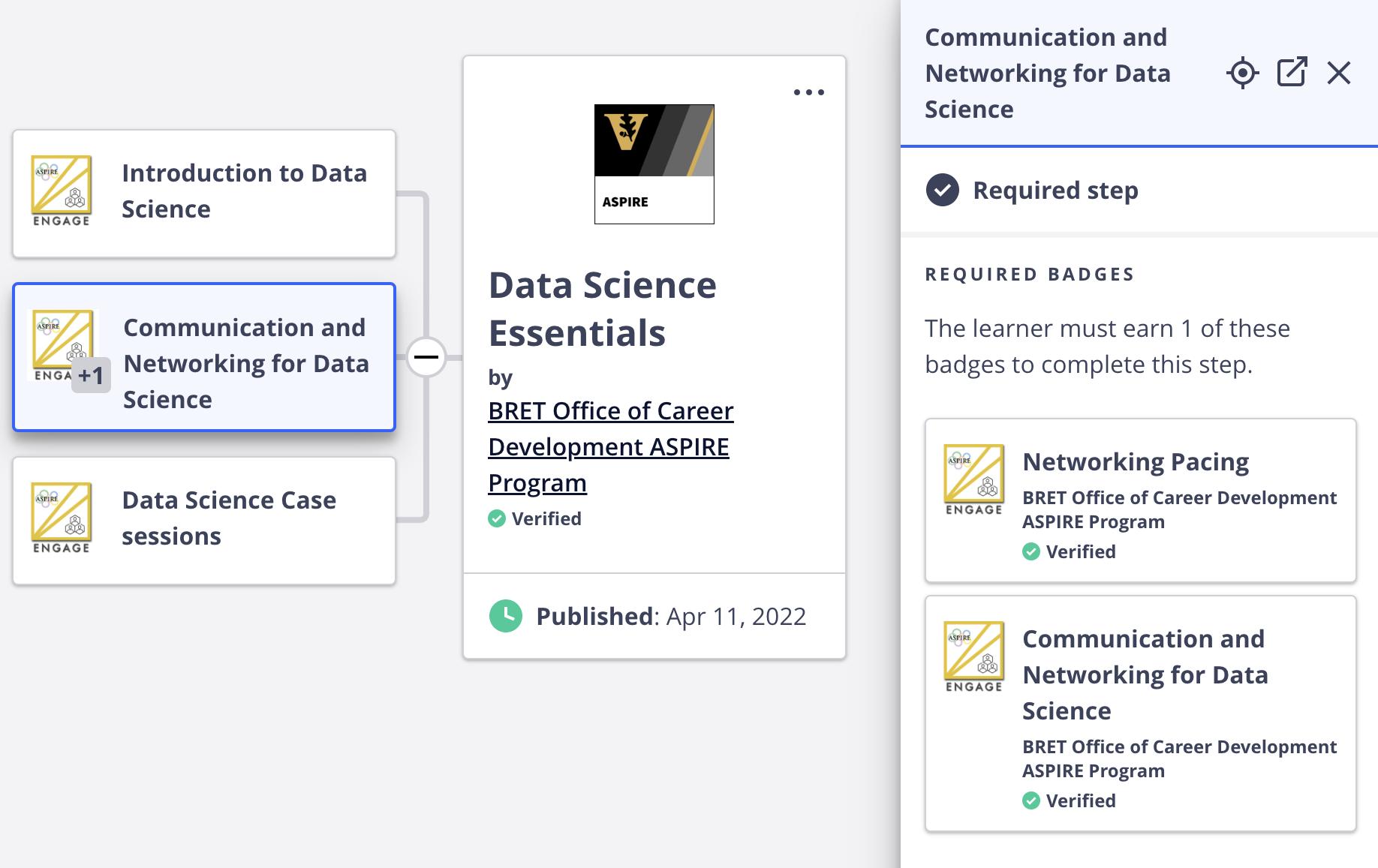
The benefits to trainees is clear. After earning a badge, participants can display the achievement on LinkedIn profiles and share to social media. They also are able to download a printable certificate. Furthermore, the platform allows trainees to create a Badge to embed in online portfolios or share a link to badges in their CV.
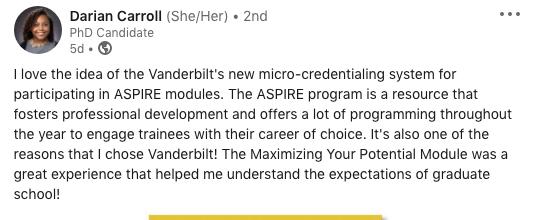
The ASPIRE Team back-issued badges to trainees who participated in an ASPIRE Module in the 2020-2021 academic year, and the badging program will continue to grow in the coming years.
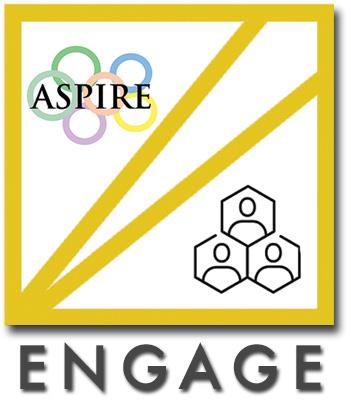
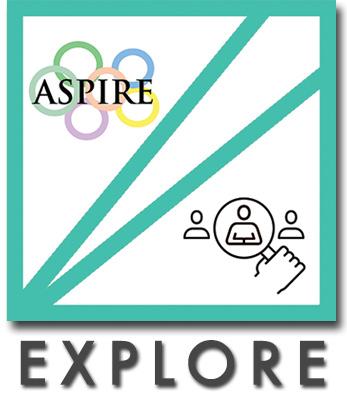
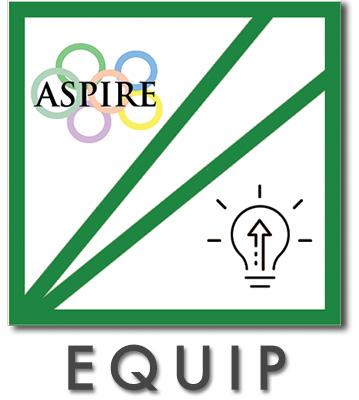
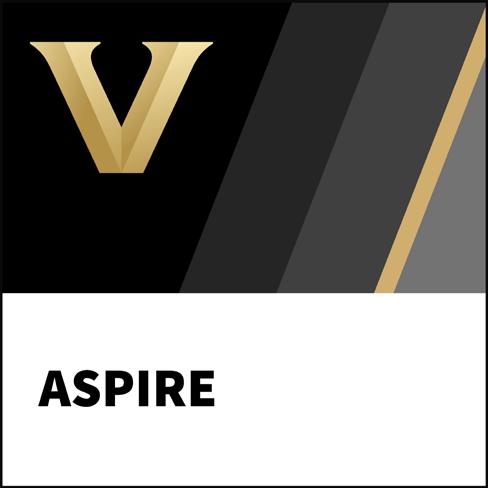
The landscape of graduate education and postdoctoral training in the biomedical sciences has changed dramatically in the last decade as PhD programs have had to grapple with the demands of a diversifying economy. PhD scientists now have more career options than ever before, and many training programs have had to adapt to provide more opportunities for graduate students to explore their interests and passions in a wider range of careers in both academia and the biotech and healthcare industries.
The push to expand the focus of biomedical research training programs beyond preparing for academic research careers is not universally agreed upon, however. The changing nature of post-graduate employment has sparked some anxieties within graduate education, specifically regarding the potential effects of broadening training on graduate students’ productivity and efficiency. As biomedical research training programs looked to include more hands-on, experiential learning outside of the lab, the question remained whether these extracurricular activities would hinder students’ scientific work and increase the time spent in PhD training programs.
A 2021 article published in the journal PLOS Biology helps answer that question and assuage these fears. The article is the culmination of a five-year study that includes data from 1,700 graduate students across ten different institutions, including Vanderbilt, who received funding from the NIH to study how expanding career development opportunities impacts the career development and trajectories of PhD students and postdoctoral fellows in the biomedical sciences. Vanderbilt co-authors of the cross-institutional project include Dr. Kathleen Gould, Dr. Kim Petrie, recently retired Dr. Roger Chalkley, and Dr. Abby Brown from Vanderbilt’s ASPIRE program.
The ten universities who participated in the study were among 17 institutions across the country who were awarded an NIH Director’s Award in 2013 or 2014 as part of the “Broadening Experiences in Scientific Training” (BEST) grant program. By examining metrics such as time-todegree and number of peer-reviewed articles published during PhD training, the PLOS Biology study is the first to demonstrate that there is no difference in research
productivity or efficiency between PhD students who participate in career development activities and those who do not. Even students who participated in career and professional development activities at the highest level, such as completing an internship, did not take longer to finish or publish fewer manuscripts.
The article’s findings validate the approach taken by graduate programs such as Vanderbilt’s that have sought to re-align their biomedical research training environment with the realities of the job market. Dr. Kim Petrie, Assistant Dean for Biomedical Career Development and co-PI on Vanderbilt’s BEST grant, shared, “This paper is a critical finding from the BEST consortium research. A common idea among faculty and trainees alike is that PhD students who participate in career development outside the lab are going to take longer to graduate and publish fewer papers. Our PLOS Biology analysis demonstrated that this wasn’t the case at all, including at Vanderbilt, where our biomedical PhD students publish papers, whether they participate in ASPIRE activities or not.” Dr. Kathleen Gould, Senior Associate Dean for Biomedical Research Education and Training and BEST co-PI, added, “Our philosophy has always been that career development starts on Day 1 of graduate school or postdoc training, and it is gratifying to have robust data in support of students taking time to be proactive in their career development.”
In 2005, the Vanderbilt Biomedical Research Education and Training Office (BRET) was among the first in the country to start a career development initiative dedicated to the needs of biomedical PhD students and postdocs. Upon receiving a BEST award in 2013, BRET established the ASPIRE program to complement the robust research training students and postdocs receive in the lab. The outcomes of the BEST consortium study confirm what ASPIRE team and biomedical trainees have known for years: supplementing traditional PhD and postdoctoral research training with intentional professional development, career exploration, and skill-building activities helps trainees develop exceptional professional knowledge and a clear sense of their career plans, ultimately strengthening the biomedical research workforce.
Partnerships with companies and organizations lead to exciting exploratory visits, internships, and externships for our trainees. Employer Relations and Workforce Development also includes:
• Meetings with potential and current employer contacts
• Hosting employer information sessions
• Speaking at conferences and giving invited talks
•
Serving on committees to represent Vanderbilt biomedical trainees
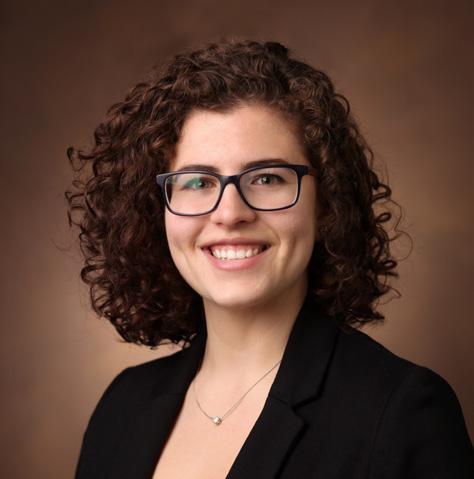
Facilitated by ASPIRE, 5 Graduate Students were selected to participate in Janssen/J&J Scholars of Oncology Diversity Engagement Program (Janssen SODEP)
Since the program began in Fall 2015, we have had a total of 350 applicants -246 GS (70%), 103 PD (29%) -- and had 169 trainees participate as interns -- 120 graduate students (71%), 49 postdocs (29%). Over this time, we have partnered with 38 different companies and nonprofits that have hosted our trainees as interns.
Commission on Novel Technologies for Neurodevelopment Decode Health Health Research Alliance
Vanderbilt School of Medicine, Basic Sciences VI4, Pathology Microbiology Immunology, VUMC
Access to the ASPIRE Internship Program has significantly expanded our department’s science communication capabilities. Bridging the gap between scientists and the community has been increasingly important and increasingly difficult. Each semester, the interns are dedicated to learning new tools and skills to contribute to how we communicate with our community so that we can continue to be a relevant and accurate source in a sea of ever-changing trends.
From innovating to funding a novel biotechnology, Karrie Dudek, PhD, has had a terrific year as the inaugural Postdoctoral Fellow of the ASPIRE to Innovate program with the recent announcement of an award from the National Science Foundation Innovation Corps (NSF I-Corps).
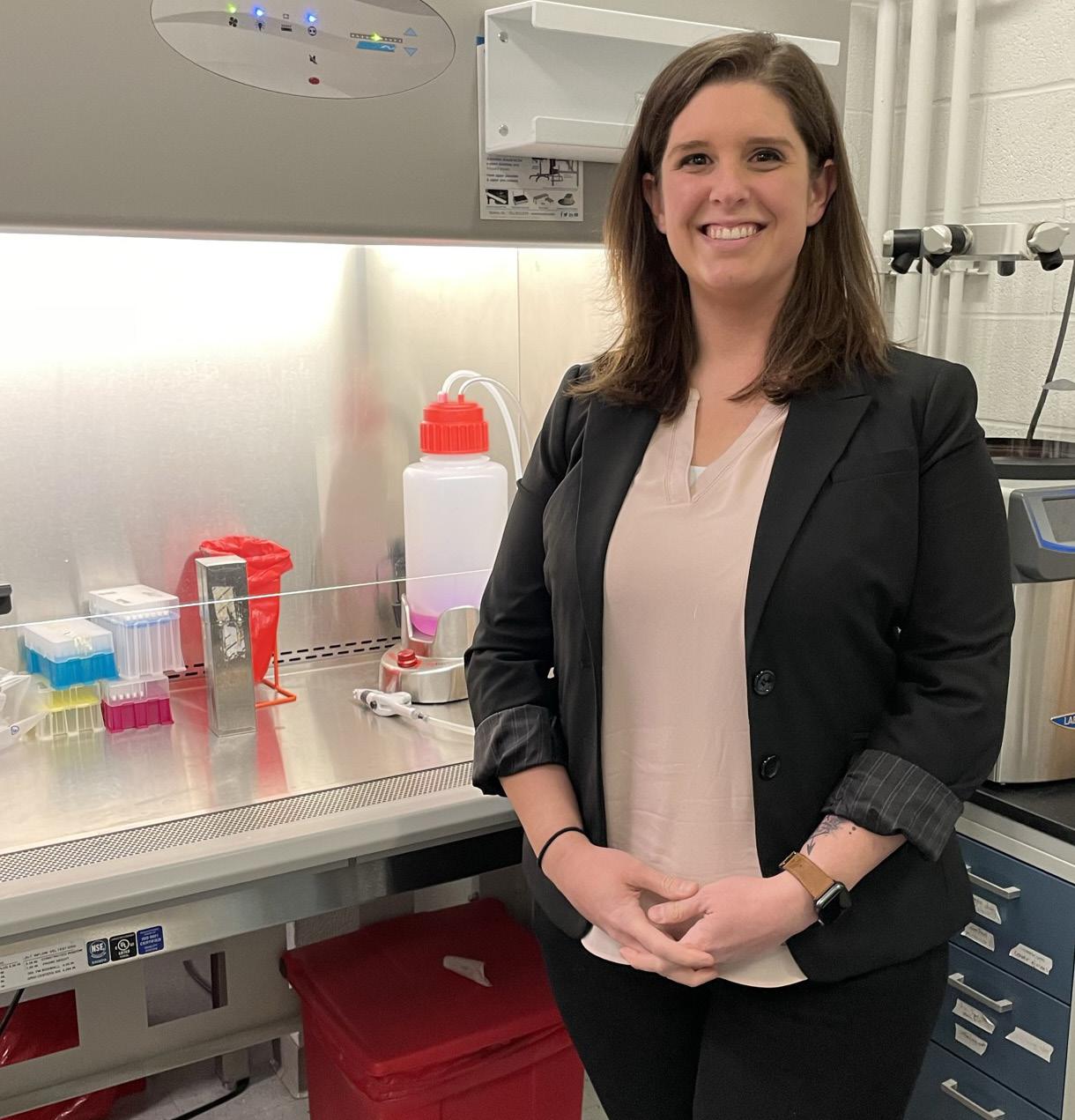
The ASPIRE to Innovate program is an initiative sponsored by Vanderbilt’s BRET Office in the School of Medicine and the Center for Technology Transfer and Commercialization (CTTC) that provides biomedical scientists with entrepreneurial skills needed to launch new technologies from the bench to the commercial market during a two-year postdoctoral fellowship. As the very first fellow of the program, Dudek has been able to mesh her scientific training with her enthusiasm for entrepreneurship. This unique program provides an opportunity for her to become a co-founder while drawing on mentoring support from the Vanderbilt entrepreneurial community.
Over the past year, Dudek has collaborated with Ethan Lippman, PhD, Associate Professor of Chemical and Biomolecular Engineering and the CTTC on an innovative new technology using hydrogels to promote the growth of large blood vessels. Previous biomaterials have the capabilities to grow capillaries, but this new method can also grow arterioles, which are larger and can withstand higher-pressure outflows. In the body, growing
Karrie Dudek, PhD ASPIRE to Innovate Postdoctoral Scholarlarge vessels can assist in the healing of tissues which can become ischemic, or deprived of blood flow, during aging, disease, and surgeries. Their team has been able to gain valuable data from in vivo mouse models, demonstrating restoration of blood flow in critical limb ischemia models. Reflecting on the work thus far, Dudek shared, “the data we’ve gathered so far has been remarkable. There is tremendous potential in the healthcare field, and I think we have an opportunity to truly impact patient lives. Nothing quite like this exists on the market today.”
Dudek’s success in the first year of the ASPIRE to Innovate program is evident from a string of recognitions and achievements, including participating in the Zeroto-510 pre-accelerator program, completing the Wond’ry’s Ideator and Builder entrepreneurship programs, and placing first in the inaugural Renaissance Women’s Summit pitch competition. Nevertheless, her greatest accomplishment thus far came this past spring when she was awarded the NSF I-Corps grant award. The I-Corps program supports the commercialization of “deep technologies” that revolve around fundamental discoveries in science and engineering by engaging program fellows in developing new scientific technologies through interviewing potential customers and partners to determine the commercial potential for their early-stage translational innovations. Thus, the NSF I-Corps program pairs nicely with the goal of the newly established ASPIRE to Innovate program to train and mentor bench scientists with the skills to launch a company.
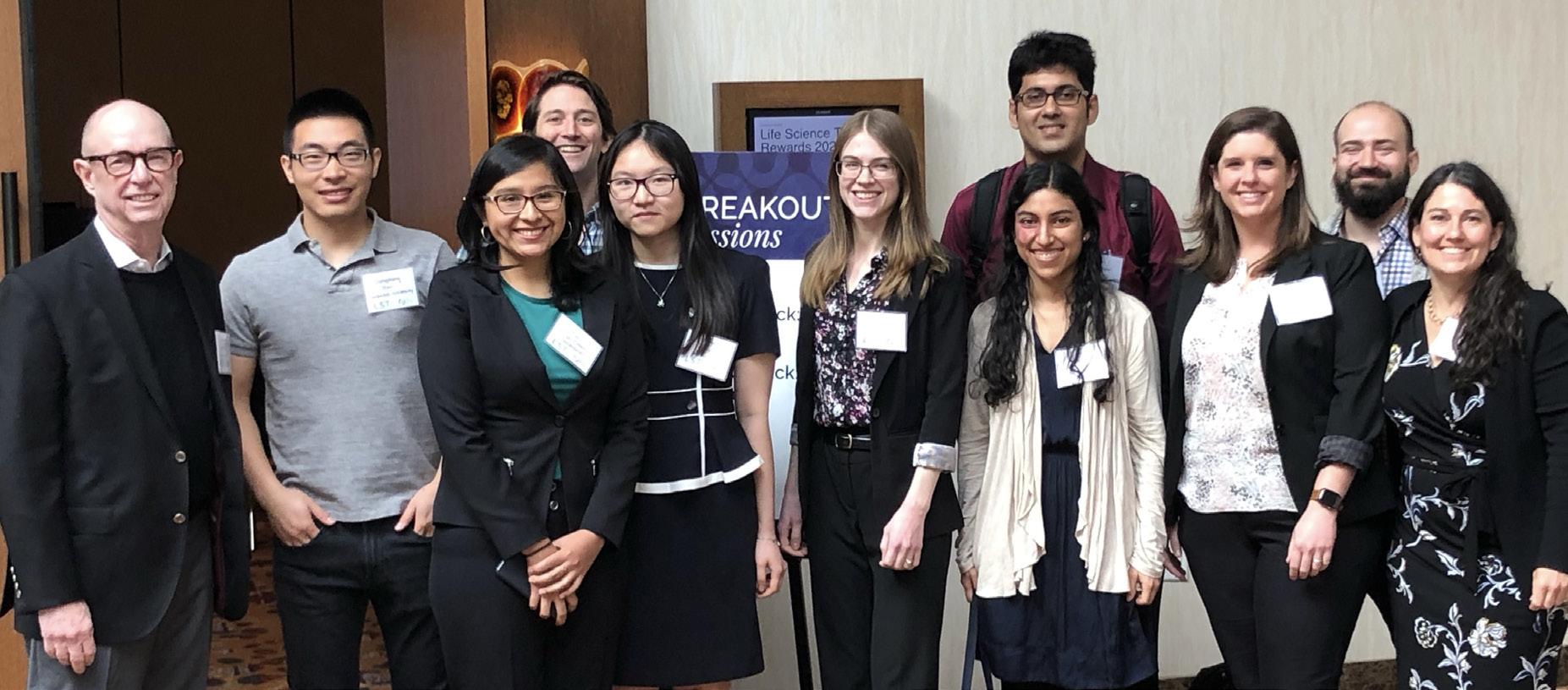
Karrie Dudek, top, at the AOSSN Conference. Above, Karrie meetins with E2I speaker. Right, Karrie Dudek joins other trainees at the Life Science Tennesee conference in Nashville in March.
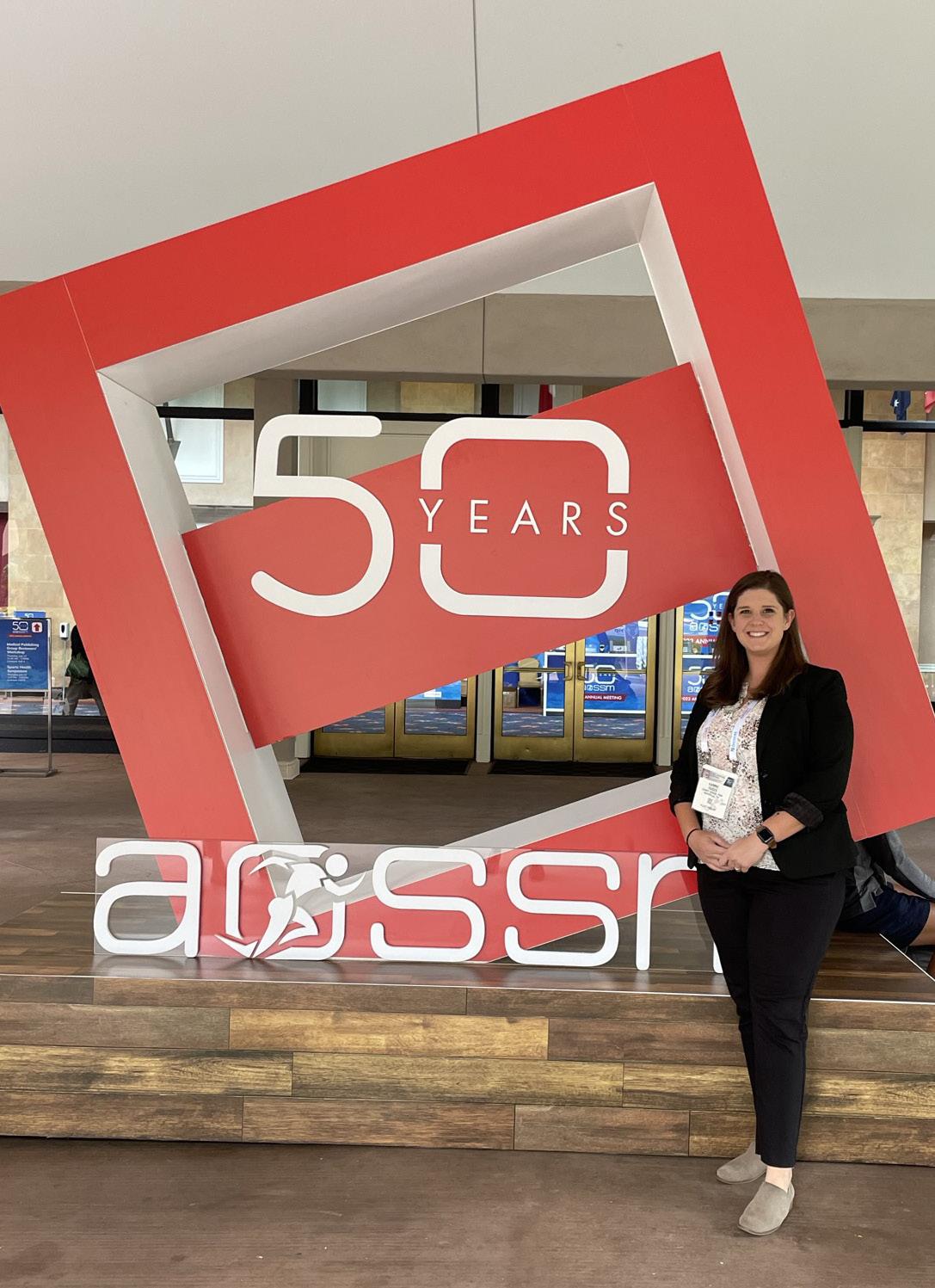
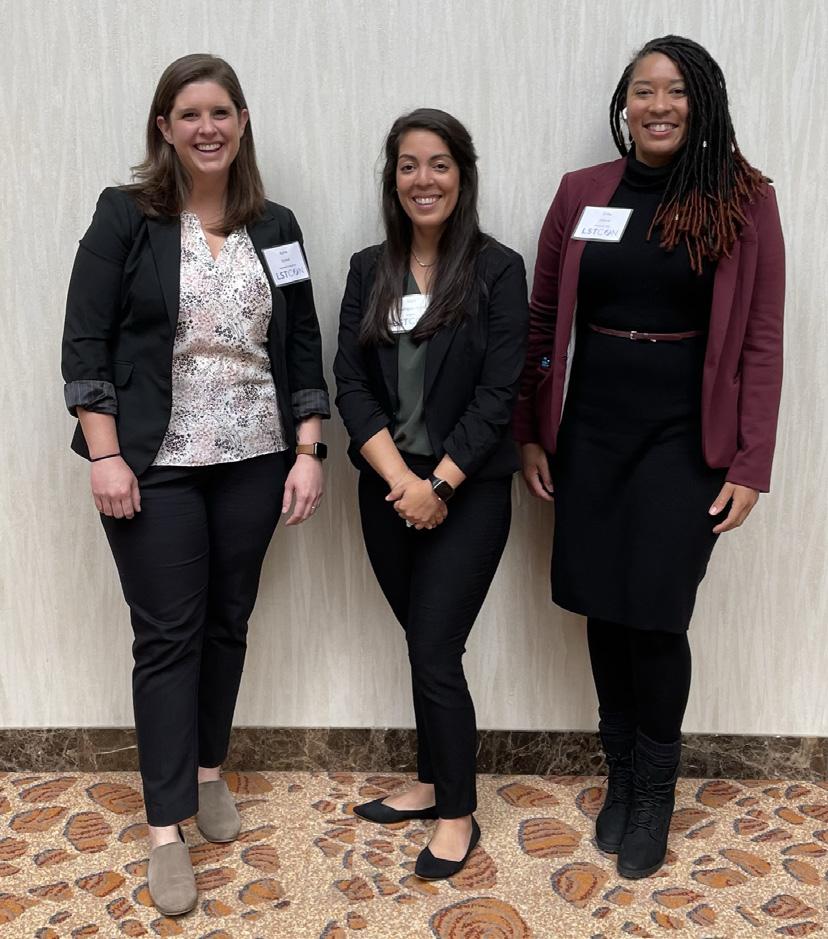
With $50,000 from the NSF I-Corps award, Dudek participated in an intense 6-month sprint as part of the program. She conducted 102 customer discovery interviews in 7 weeks over the course of July and August 2022 with surgeons, hospital administrators and contractors, insurance companies, and other stakeholders interested in the potential of this hydrogel technology. “It’s all about seeing if customers see the solution and the technology going into the right market,” Dudek said with an excited grin. Ideally, Dudek will find investors who see value in the hydrogel technology as a therapeutic biomaterial and want to support its commercialization. Since the hydrogel technology promotes the growth of large blood vessels, it would not only assist in healing of blood-deprived tissues, which the team has shown in mouse models, but it could also be used to assist in the treatment and healing of orthopedic injuries, organ transplants, diabetic foot ulcers, burns, and more.
After finishing the ASPIRE to Innovate postdoctoral position next summer, Dudek envisions using her new entrepreneurial skillset to continue developing the business and making progress towards getting the vessel-promoting hydrogel technology to market. As a co-founder along with Lippman, she would become the CEO of this company. With the support of both the ASPIRE to Innovate program, as well as the NSF I-Corps award, Dudek is well on her way. She is excited about what the future holds and said, “this program, along with the support of the Vanderbilt and greater Nashville community, has helped us establish a strong foundation that will serve us well as we take our next steps to raise capital, grow the company, and seek FDA approval.”
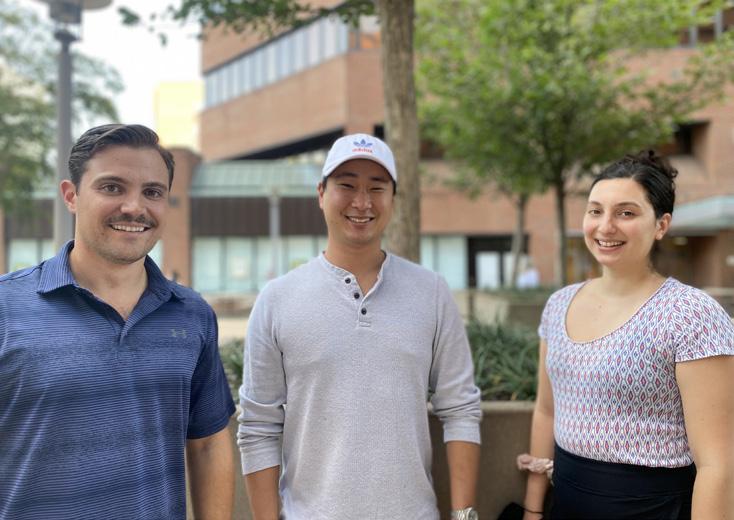
Graduate school internships are a relatively new idea. However, the ASPIRE Program within Vanderbilt University School of Medicine’s BRET Office of Career Development is leading the way in fostering these invaluable opportunities for its biomedical PhD graduate students and postdoctoral fellows. The ASPIRE Internship program, now in its eighth year, has facilitated nearly 170 internships for the biomedical scientist trainees it serves. Throughout this time, the program has proven to be a mutually beneficial arrangement between the interns and the 38 participating host organizations.
During an internship, graduate students and postdocs develop new skills and domain knowledge by training in areas typically not emphasized in the lab and gaining exposure to work environments outside of academia. The organizations who employ interns find that they can increase their capacity and gain access to new ideas, while also identify and potentially recruit from a pipeline of highly-trained talent.
Top, Decode Health currently has three ASPIRE interns working at the company. Above, the Decode team meets virtually via Zoom. Below, Aaron May-Zhang, PhD, spent time as an intern with Decode Health, and now is in a full-time role at Fluent Biosciences thanks to his internship experience.
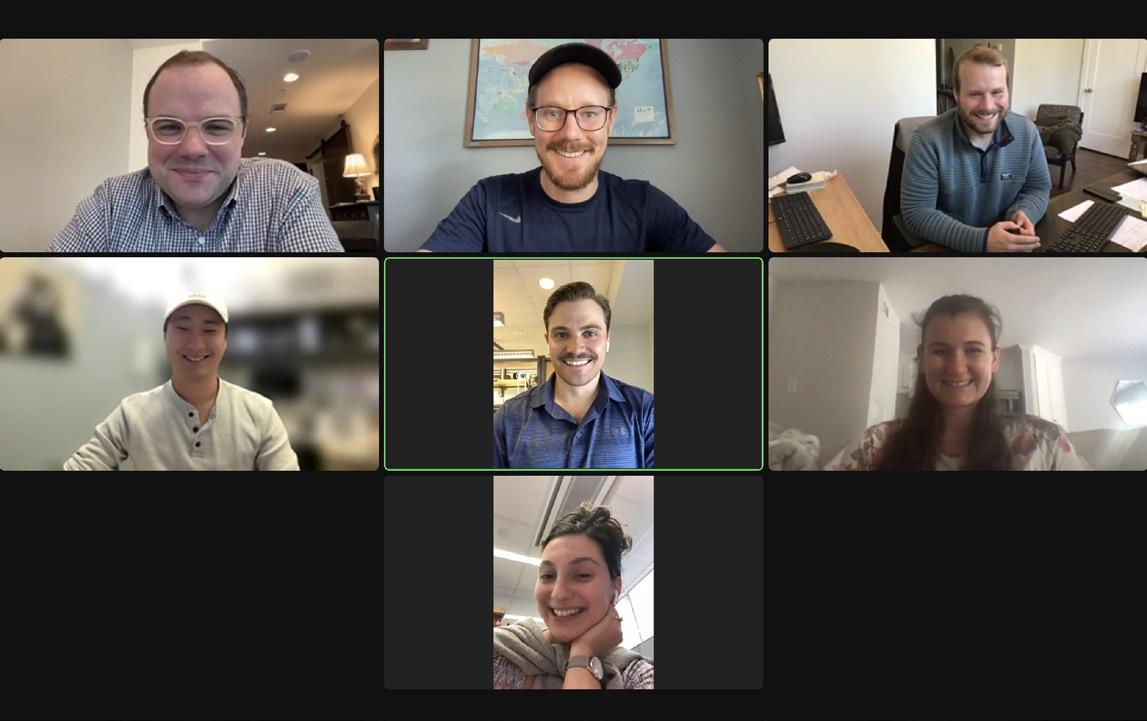
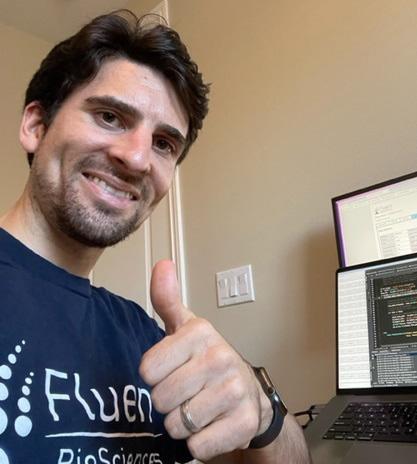
ASPIRE interns devote 8-10 hours per week for three months or longer to support the goals of a partner organization. Internship hosts represent a wide range of industries where scientists can make meaningful contributions, including consulting, scientific non-profits, medical and scientific communications, science policy, biotech business development and data science. Data science, in particular, is an increasingly popular career path for PhD-trained biomedical professionals because of its utility in almost all areas of biomedical research and the growing demand for individuals who can mine and interpret the vast amount of data being generated by biomedicine.
The ASPIRE data science internship with Decode Health is a perfect example of how an internship can serve a growing field. Decode Health is a healthcare AI company that powers an evolving ecosystem of diagnostic and pharmaceutical companies and linked technology partners. Leveraging a decade of integrating machine learning methods with large datasets, including clinical, genomic, and social determinants of health data, Decode leads the ecosystem to deliver proactive healthcare innovation that advances precision medicine. The Decode Health internships equip developing scientists with practical knowledge and industry experience. Upon completion, the interns are well prepared to make meaningful contributions within their fields.
The opportunity to gain skills and exposure becomes even more relevant as careers for biomedical scientists expand. Experiential learning is a valuable asset on the job market, and those who have it are highly sought after. This was the case for Aaron May-Zhang, PhD, Senior Bioinformatics Scientist at Fluent BioSciences, Inc. He broke into the field after interning with Decode Health. Like many of his biomedical scientist colleagues, May-Zhang had no data science or bioinformatics experience before starting his postdoc, but he had become interested in the field as he saw the exciting challenges and growth opportunities available. “I was trying to find every opportunity to diversify and understand how machine learning worked.
Decode Health had some of the best experts in the city for doing machine learning and RNA-sequencing,” says May-Zhang. “My internship experience allowed me to be an attractive candidate to Fluent Biosciences because their day-to-day roles were similar to what I was experiencing in my internship. I was able to point to specific outcomes and efforts that were highly relevant skills to the company.”
May-Zhang is not the only intern to find the internship opportunity valuable. Since 2018, the Decode Health team has regularly offered internships via the ASPIRE Program. The company has now hosted 9 successful interns, several of whom have gone on to pursue data science roles in various industries. “Industry is a completely different work environment than academia because people think about and prioritize different things here. Seeing that during an internship really softens the transition,” says Darwin Fu, PhD, Data Scientist at Kitcheck. Fu felt his experience interning with Decode Health during his postdoc in biomedical informatics was imperative to securing his current role. It gave him domain knowledge and professional skills in the start-up space which proved invaluable when he set out to pursue his career.
Decode Health co-founder and CEO, Chase Spurlock, PhD, who is a Vanderbilt University doctoral alumnus, says his team takes a hands-on approach to training interns by integrating them throughout the company’s operations. As such, he makes sure the team involves interns in areas that align with their individual talents and interests. “Interns have the opportunity to touch every aspect of the company. We’re very intentional about having people join us who are interested not only in being on the data team, but also seeing how Decode’s products and services come together,” says Spurlock.
During the internship, students described having a selfpaced, flexible environment. This structure allows them to develop their skills and work on independent, self-driven projects befitting their interests, all while adding value to the team. In fact, interns are given the opportunity to move up in the company as their projects develop into pipelines that can help advance customer goals. Cody Heiser, a current graduate student in the Chemical and Physical Biology program, has found this opportunity at Decode Health rewarding. “It’s certainly been a valuable experience. I’ve gotten to wear a lot of different hats along the R&D spectrum in a dynamic environment where everybody has to contribute on so many different levels,” says Heiser. As an intern for the last year and a half, Heiser has worked his way up from a data analyst to a data engineering role. His work has allowed him versatility by applying skills learned in the lab to different contexts. In fact, Cody helped shape the data visualization story for a marquee Decode Health collaboration where Decode is looking to identify biomarkers for specific inflammatory diseases. Heiser notes, “The internship has given me experiences to point to and say here are the challenges that I’ve seen in an industry space, and this is how I contributed to overcome that
challenge. This role will allow me to differentiate myself in the growing data science job market.”
Mabel Seto, PhD, a former Pharmacology graduate student who is now a postdoc at Harvard, saw an internship as a valuable way to test out the different facets of a field. Like May-Zhang and Fu, she participated in the Data Science Essentials module offered by the ASPIRE Program to introduce students to careers in data science. This noncredit bearing short course is run in partnership with the Nashville Software School. It teaches fundamental concepts in data science to biomedical graduate students and postdocs seeking to learn more about the programming and data analytics tools employed by data scientists. In addition, participants receive training in communication skills and are exposed to professionals in the data science industry through a series of case sessions highlighting real-world projects from their companies. As Seto’s interest in data science grew, she wanted to immerse herself further in the field. Taking on the Decode Health internship was a natural next step as she continued to explore data science as a career. In her view, “Internships, such as the one at Decode Health, are an integral part of graduate school. It helps to expand your interests by digging into a field, similar to the way one learns a language.”
In addition to his involvement with the ASPIRE Internship program, Spurlock continues to engage with the Vanderbilt community in numerous ways. He maintains an adjunct faculty appointment at the Vanderbilt University Medical Center as Assistant Professor of Medicine in the Department of Medicine, Division of Rheumatology & Immunology. He is also an affiliate faculty member at the Vanderbilt Data Science Institute. As the co-founder and CEO of a data-science-focused healthcare start-up, Spurlock had the opportunity to share his experience with the Vanderbilt community as the speaker at the inaugural Enabling Innovation Initiative (Ei2) seminar series in 2018. More recently, he and his team worked directly with a cohort of graduate students and postdocs by leading one of the four data science case sessions offered in the spring of 2022 as the capstone activity for the Data Science Essentials ASPIRE module.
For Spurlock and the Decode Health team, the ASPIRE partnership has been incredibly rewarding. He described the relationship as one which provides bright, talented self-starters to the company. Spurlock also views the ASPIRE internships as providing experiences he thinks are necessary to bolster competitiveness of Vanderbilt graduates and foster industry-academia connections. The ASPIRE program gives participating companies the leeway to conduct interviews and engage with students in a way best fits to their needs. The ASPIRE program is driven to provide opportunities for Vanderbilt students to engage with the larger community where they can bring value and gain experience across a wide variety of industries.
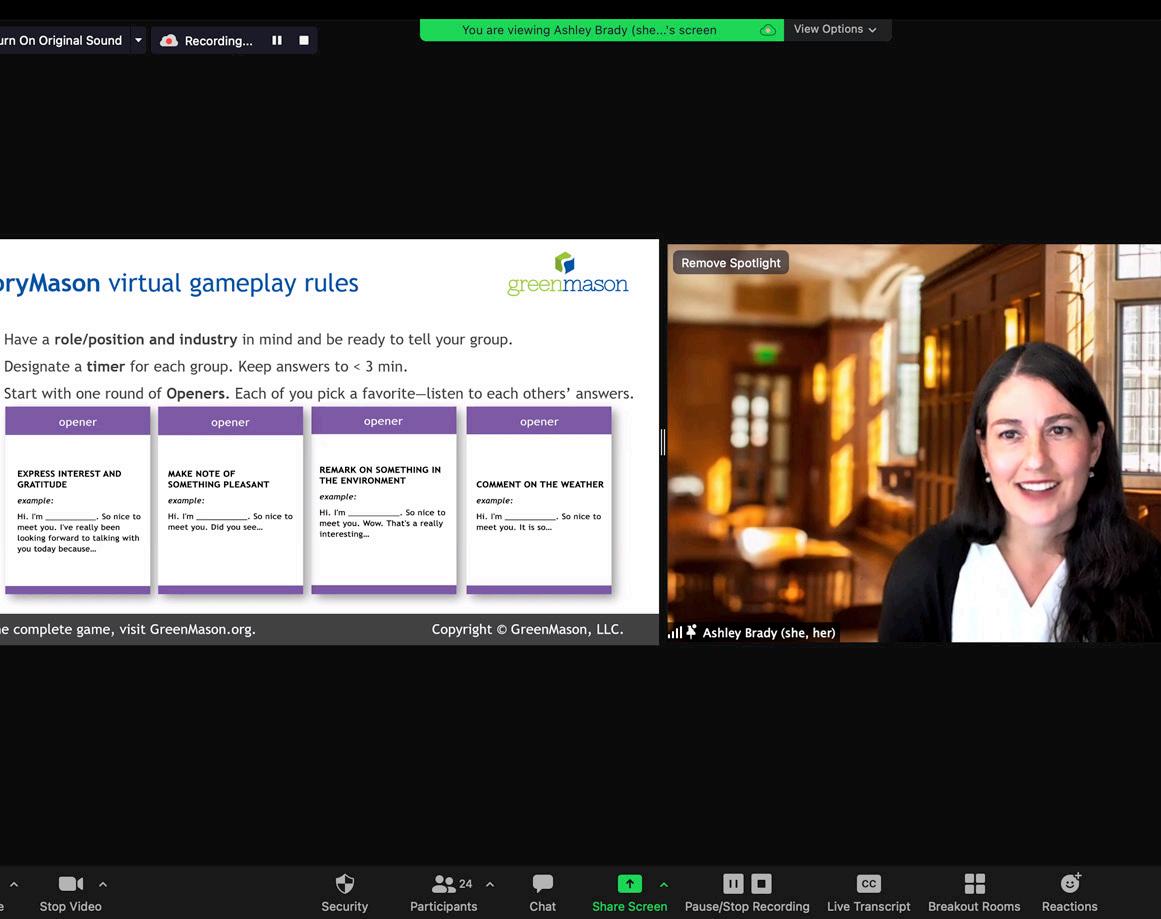
The BRET Office of Career Development strives to maintain partnerships with departments and programs across campus. We partner by providing presentations on a variety of professional and academic development topics and serving on university committees.
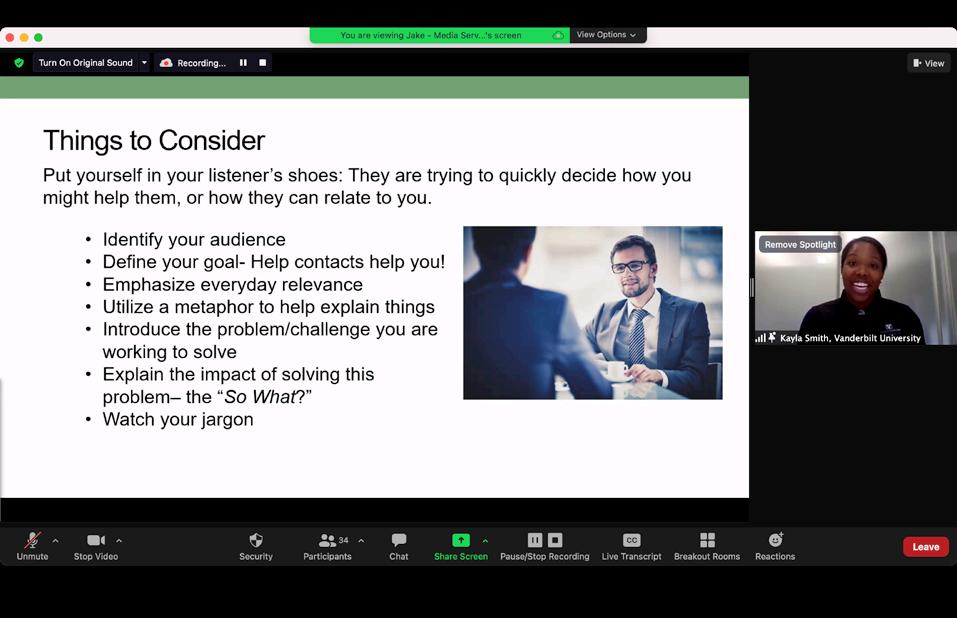
Above, breakout groups of first year students work together during a StrengthsFinder presentation led by Kate Stuart and Angela Zito. Right, Ashley Brady, PhD, and the Vanderbilt Career Center’s Kayla Smith led sessions on interviewing prep for current trainees.
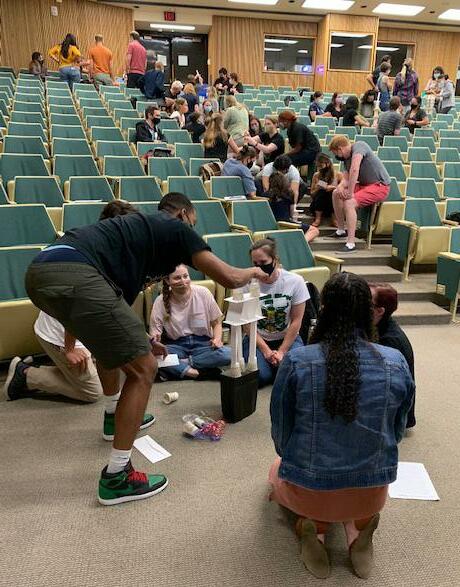
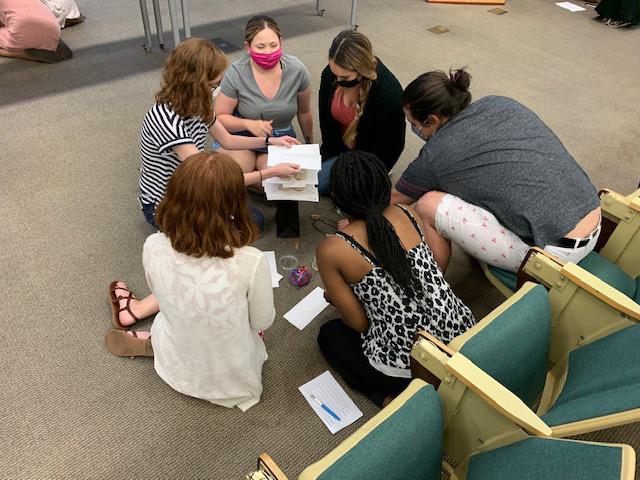
The ASPIRE Team serve in a number of roles to a variety of campus organizations, committees, and initiatives:
• Dean’s Advisory Council for Mental Health and Wellness
• Basic Sciences Board of Visitors Reputation Consulting Group 20202021, Co-Lead on Workforce Development Working Group Fall 2021
• Professional Development Course, “Becoming a Scientist,” IGP Curriculum Review Committee
• Vanderbilt University Advanced Degree Consulting Club
• Vestigo Editorial Board
• Life Science Tennessee Academic Alliance
Vanderbilt School of Medicine Basic Sciences Dean’s Office
Vanderbilt University Medical Center
Vanderbilt Graduate School
Vanderbilt Career Center
Vanderbilt Center for Teaching Vanderbilt Center for Tech Transfer & Commercialization Training Grants in the Biomedical & Biological Sciences Vanderbilt Development & Alumni Relations Vanderbilt Graduate Development Network Vanderbilt Graduate Leadership Institute Vanderbilt Institute for Infection, Immunology, & Inflammation (VI4) Vanderbilt International Student & Scholar Services Vanderbilt Managerial Studies Program Vanderbilt Medical Scientist Training Program
Vanderbilt Office of Federal Relations
Vanderbilt Office of Public Affairs Vanderbilt Office of Postdoctoral Affairs
Vanderbilt Postdoctoral Association
Vanderbilt Process & Solution Implementations
Vanderbilt Research Cores & Shared Resources
Vanderbilt School of Engineering
Vanderbilt University Advanced Degree Consulting Club
Vanderbilt Science Policy Group
Vanderbilt University Counseling Center The Vanderbilt Collaborative for STEM Education & Outreach (CSEO)
Vanderbilt Writing Studio The Wond’ry
The Office of Career Development engages biomedical PhD and postdoctoral trainees once they complete their training. Alumni volunteer their time at career exploration and professional development events. The office also facilitates connections between alumni and current trainees. Our alumni network helps us better understand career outcomes, informs our career programming, and shapes our advice to current trainees.
Location of first position of biomedical PhD alumni who defended between July 2021 and June 2022. Alumni of our programs accepted postdoctoral fellowships and employment opportunities throughout the country and around the world.
Size of the circle represents the number of graduates employed in that location (n=61)
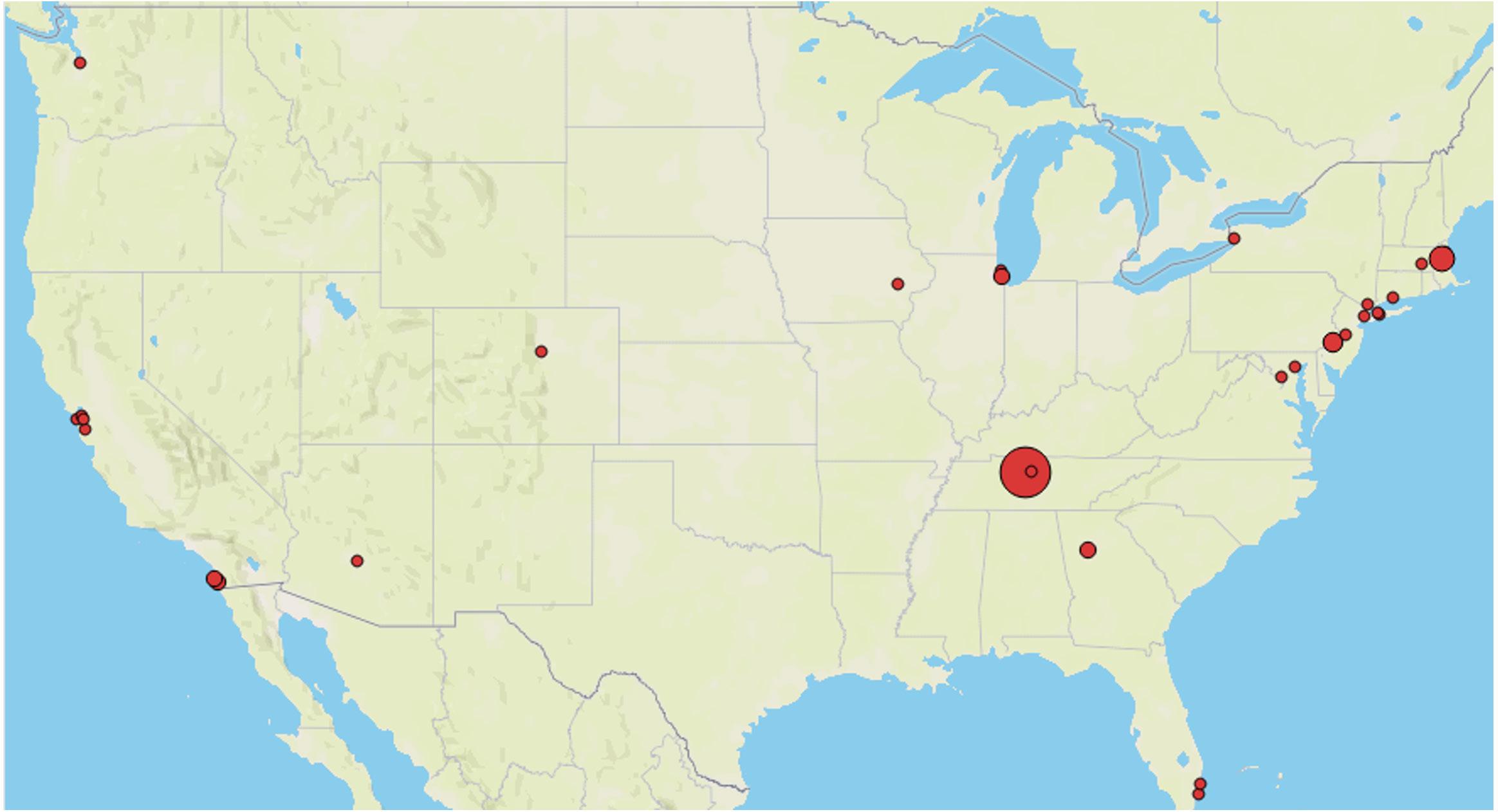
AMO: Administrative or Managerial or Operational Biomedical PhD Graduates (July 2021 – June 2022 defense dates)
Data about first position after graduation is collected from our predoctoral exit survey.
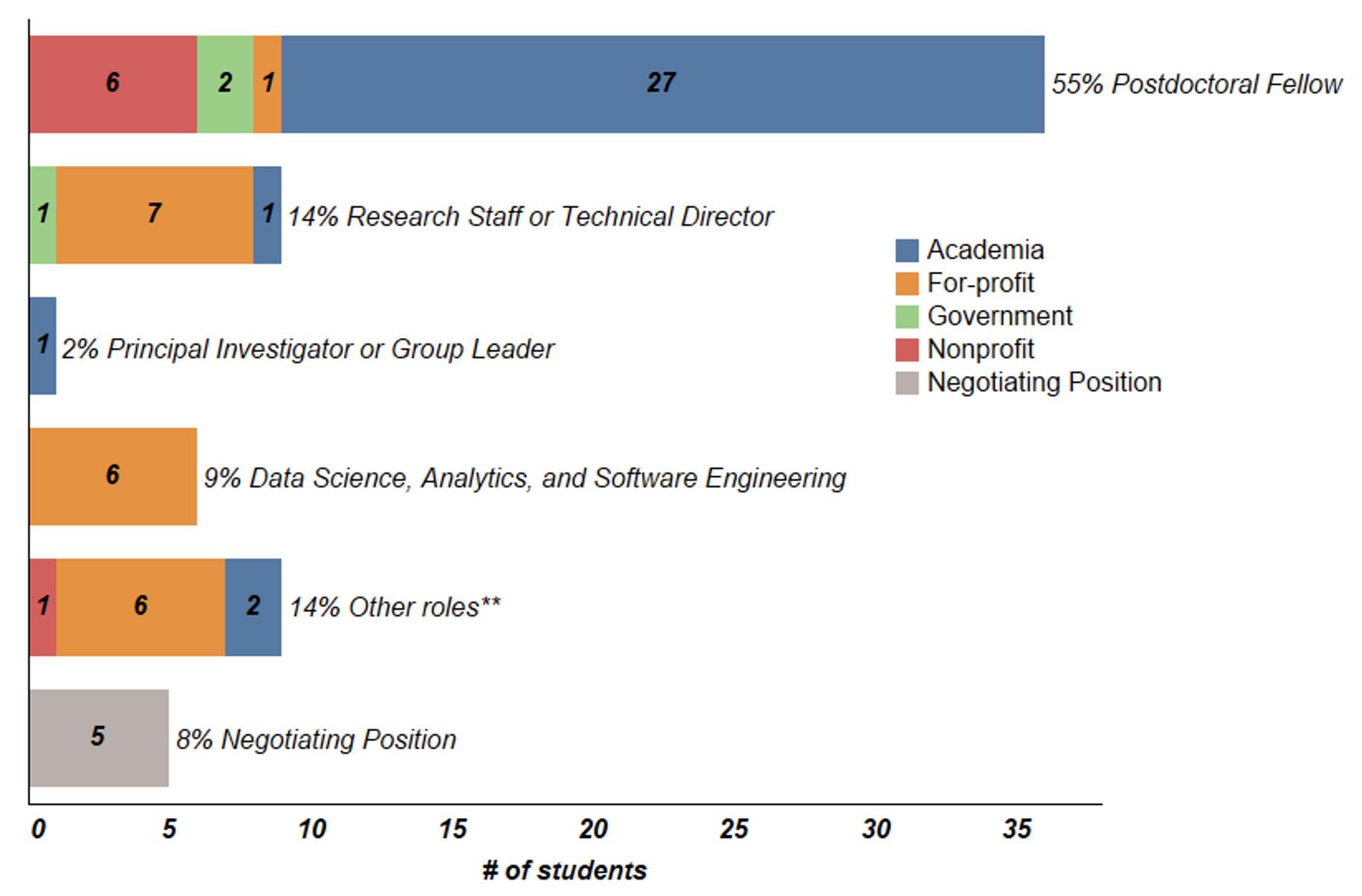
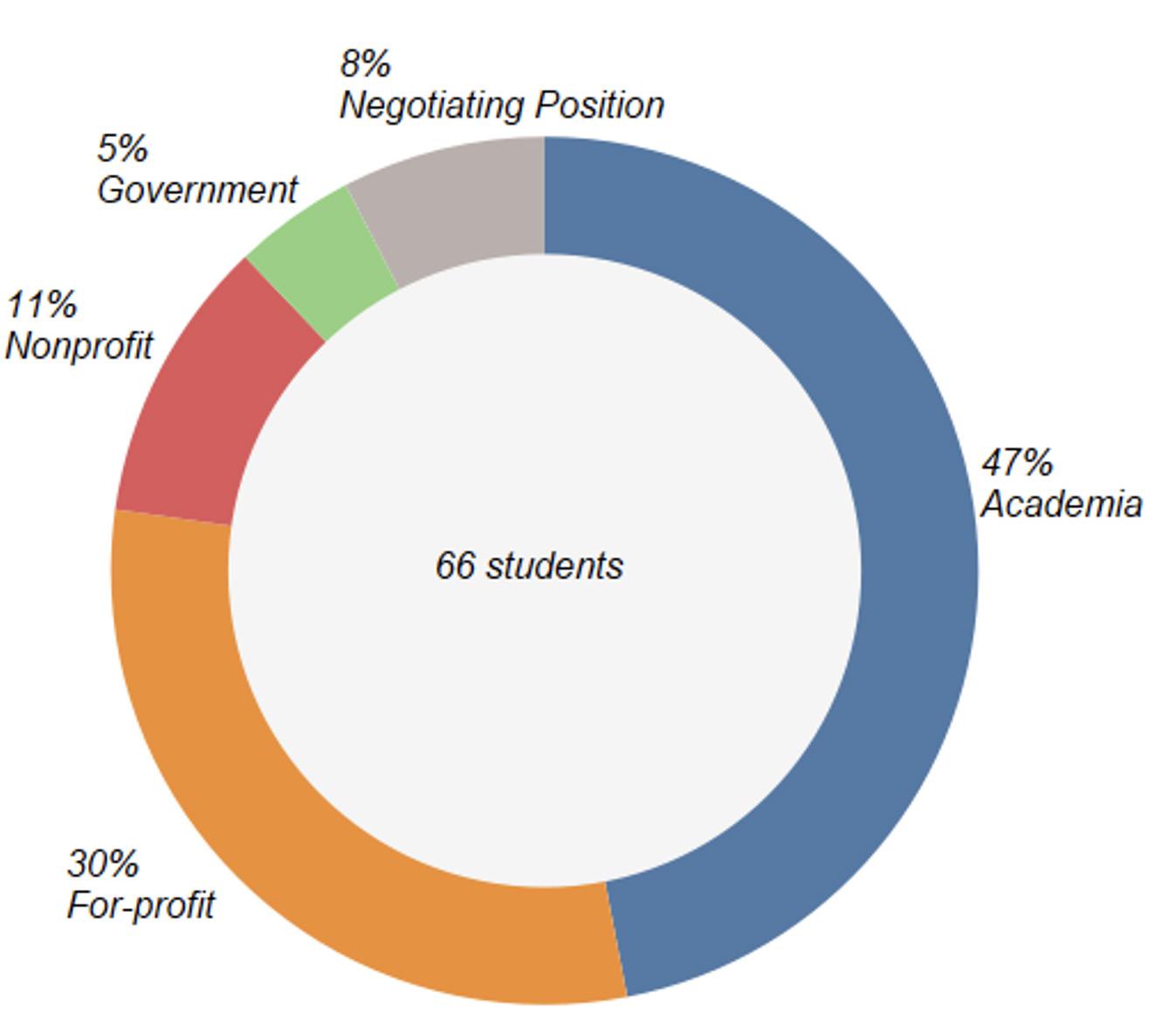
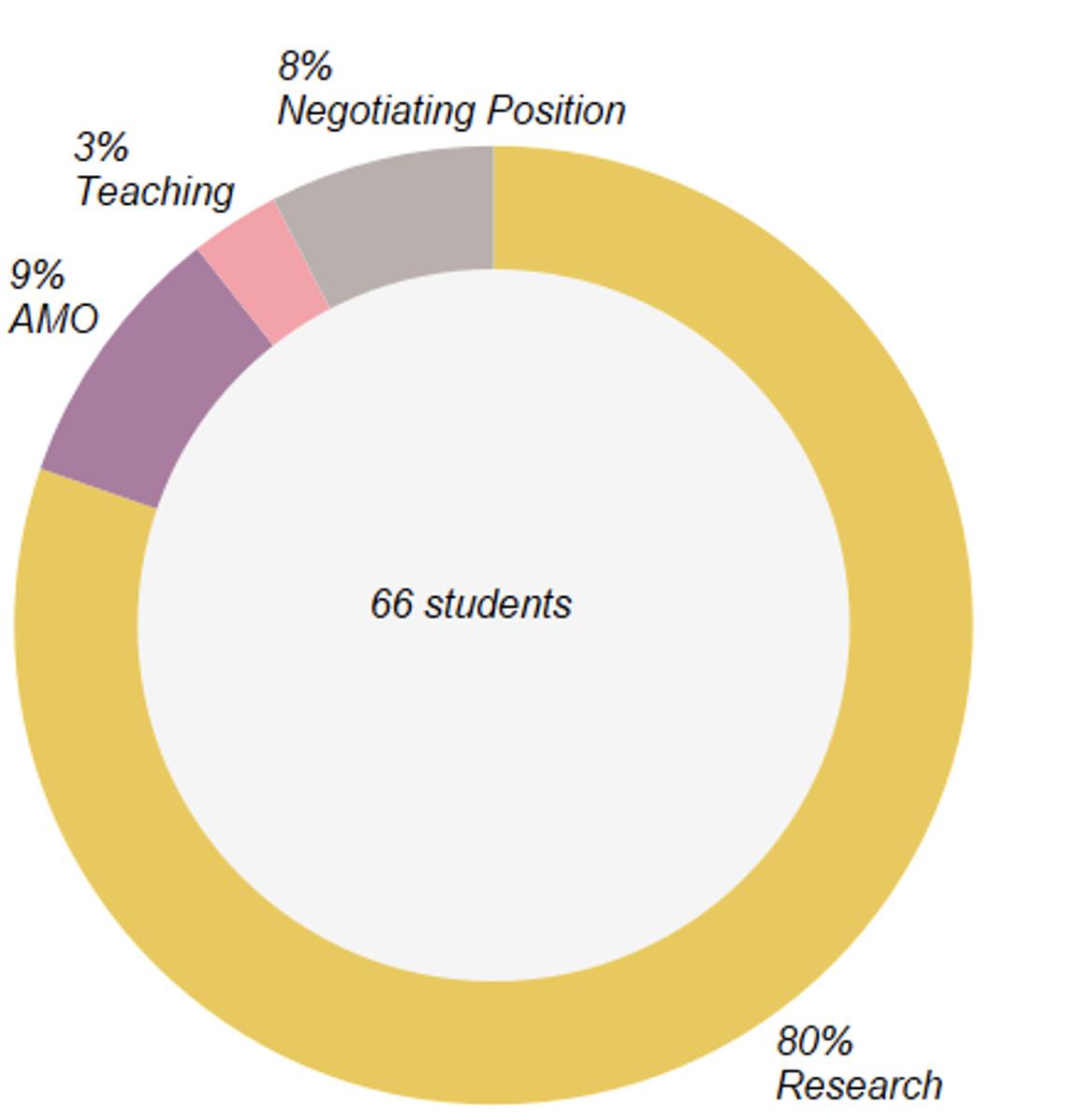
The bar graph shows the different employment roles for our alumni. The job sectors in which our alumni hold each role are also shown.
Other roles (denoted with **) include medical affairs, science or medical writing and communication, teaching faculty or staff, and continuing further education.
**Other roles include:
• Administration (1)
• Business development, consulting & strategic alliances (1)
• Clinical research management or Clinical development (2)
• Sales & marketing (1)
• Science or medical writing & communication (2)
• Teaching faculty or staff (2)
Left, alumni and current trainees mix and mingle at the Boston Happy Hour on the last night of the ASPIRE on the Road trip. Below, Dean Larry Marnett shares a laugh with alumni gathered in Boston.
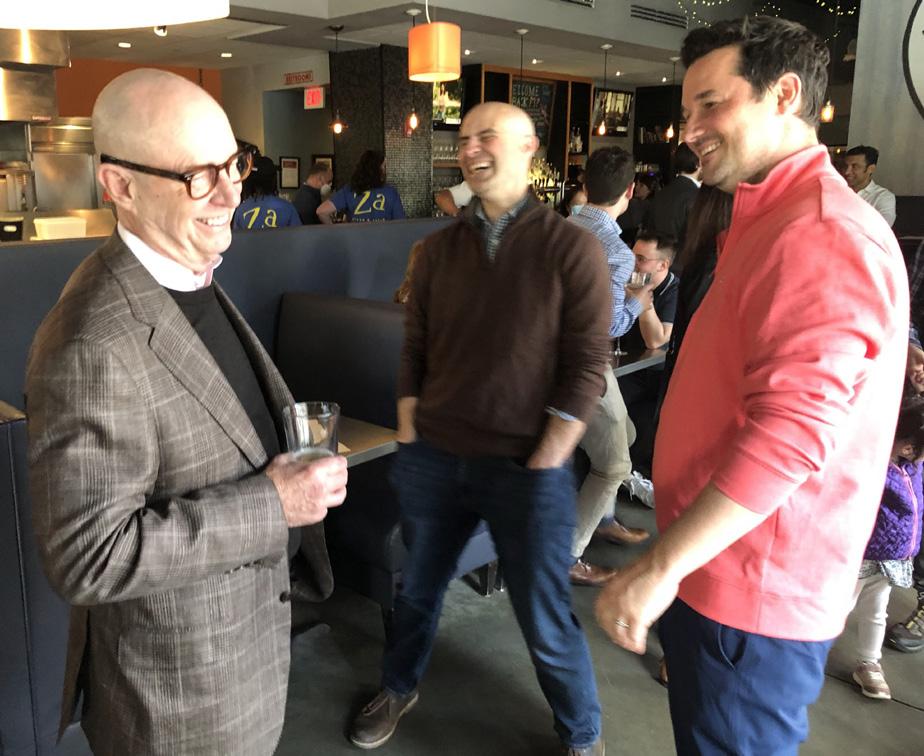
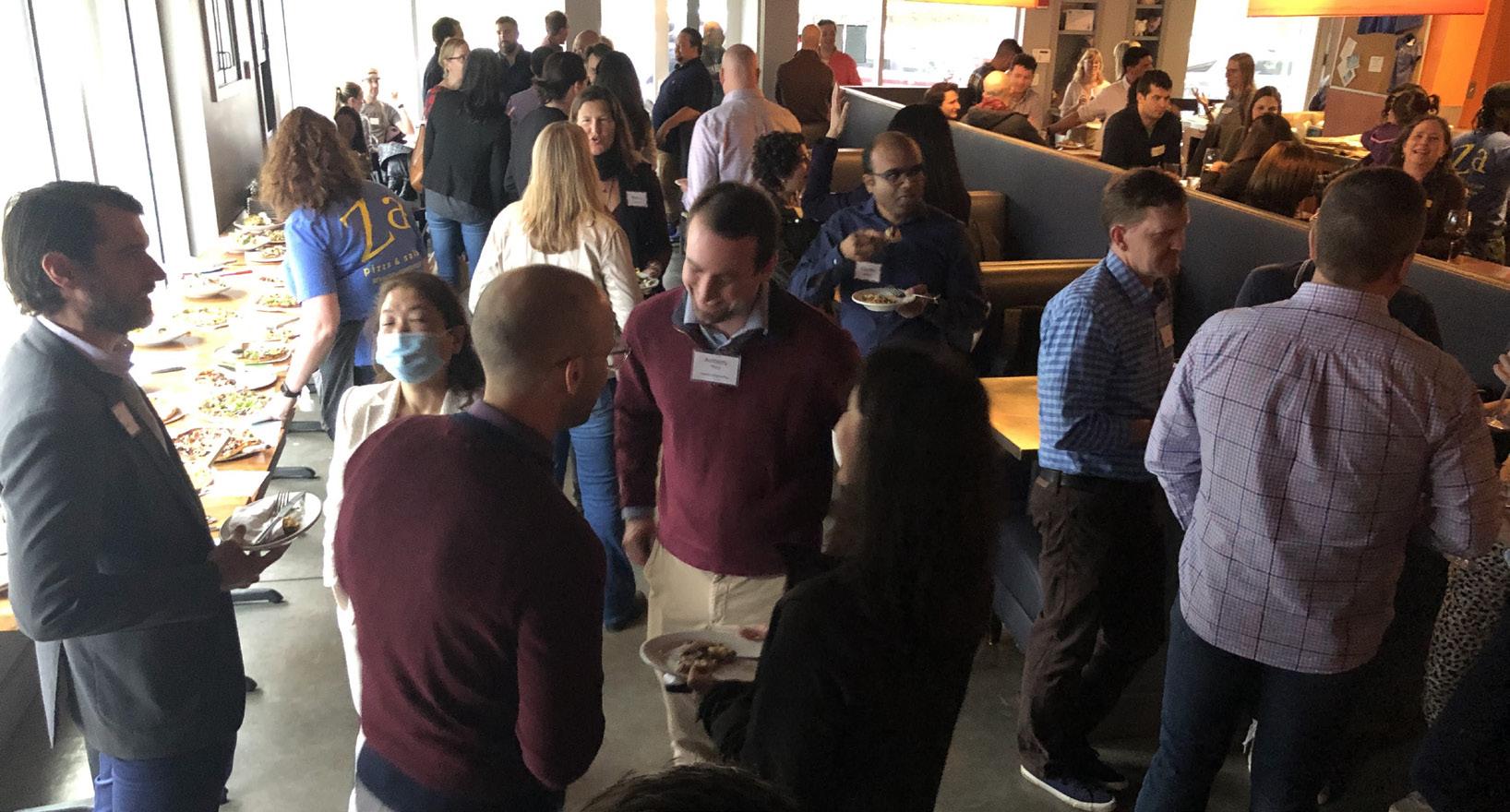
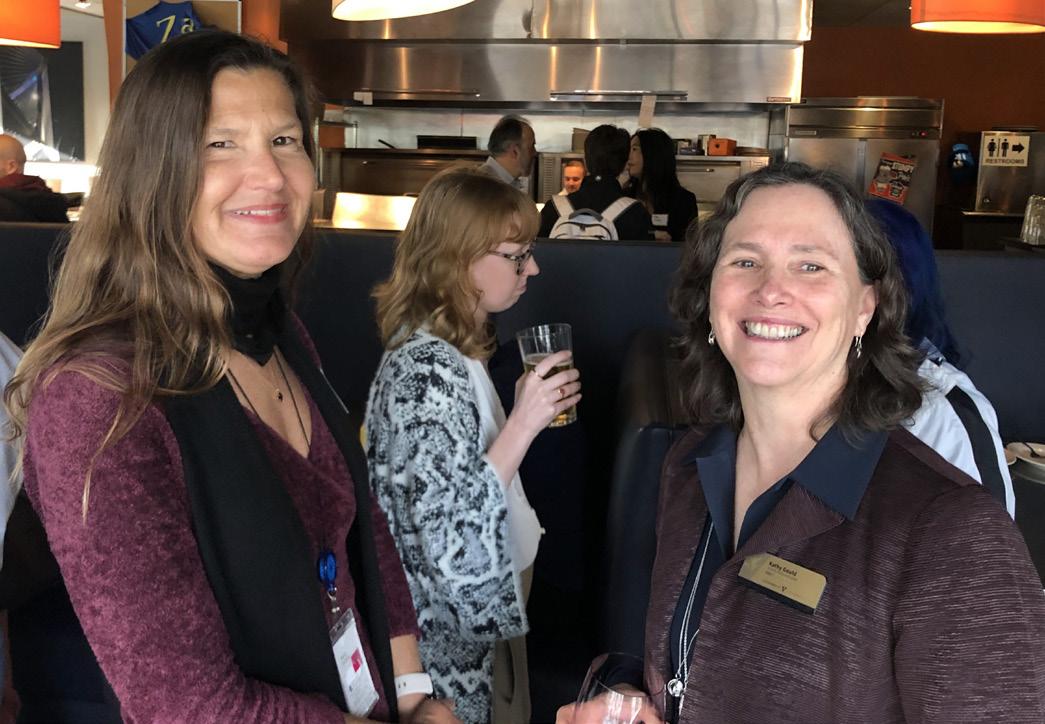
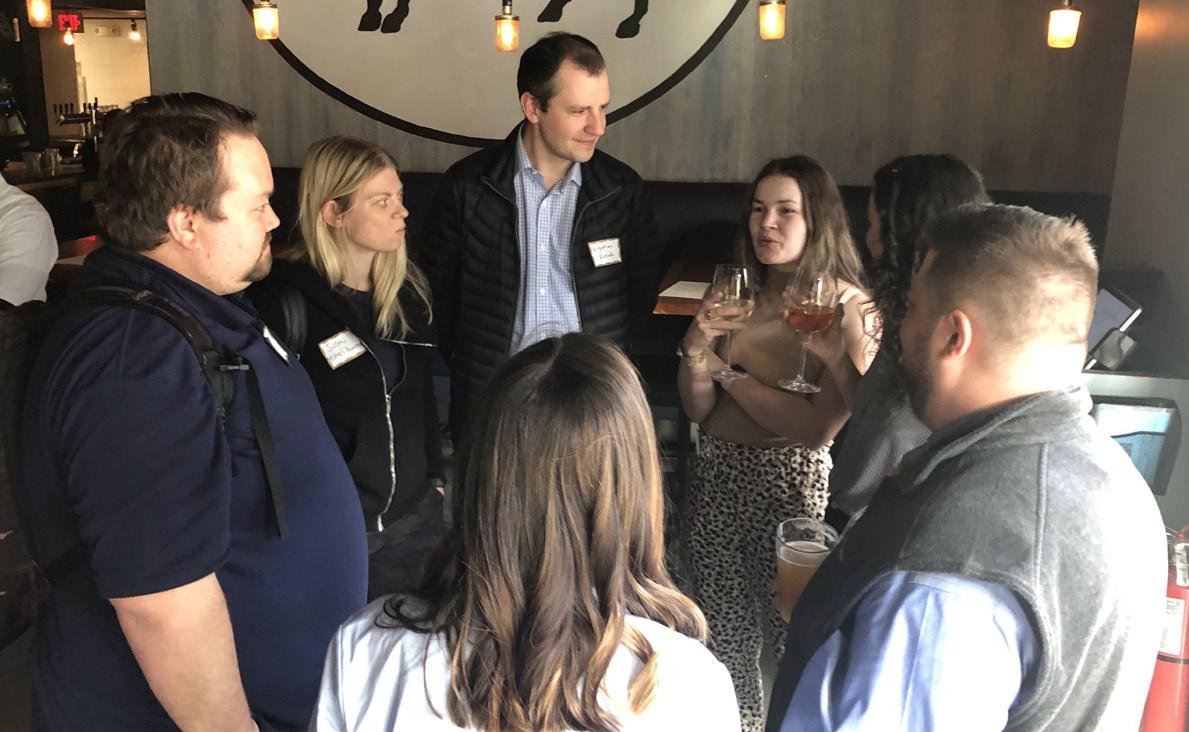
Left and below, alumni and current trainees enjoy time together while at the Boston Alumni Happy Hour.
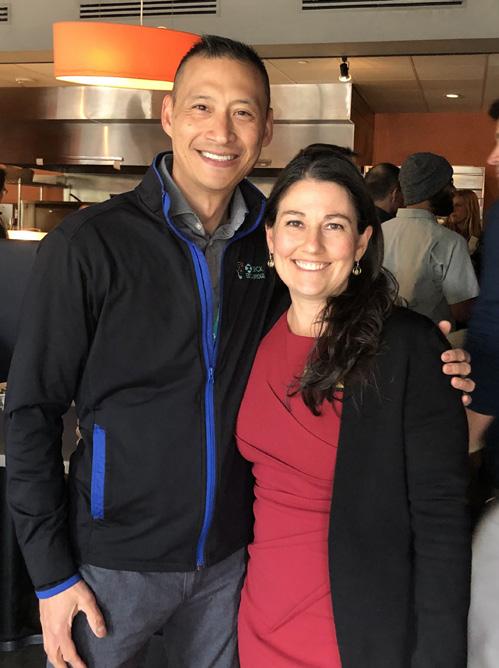
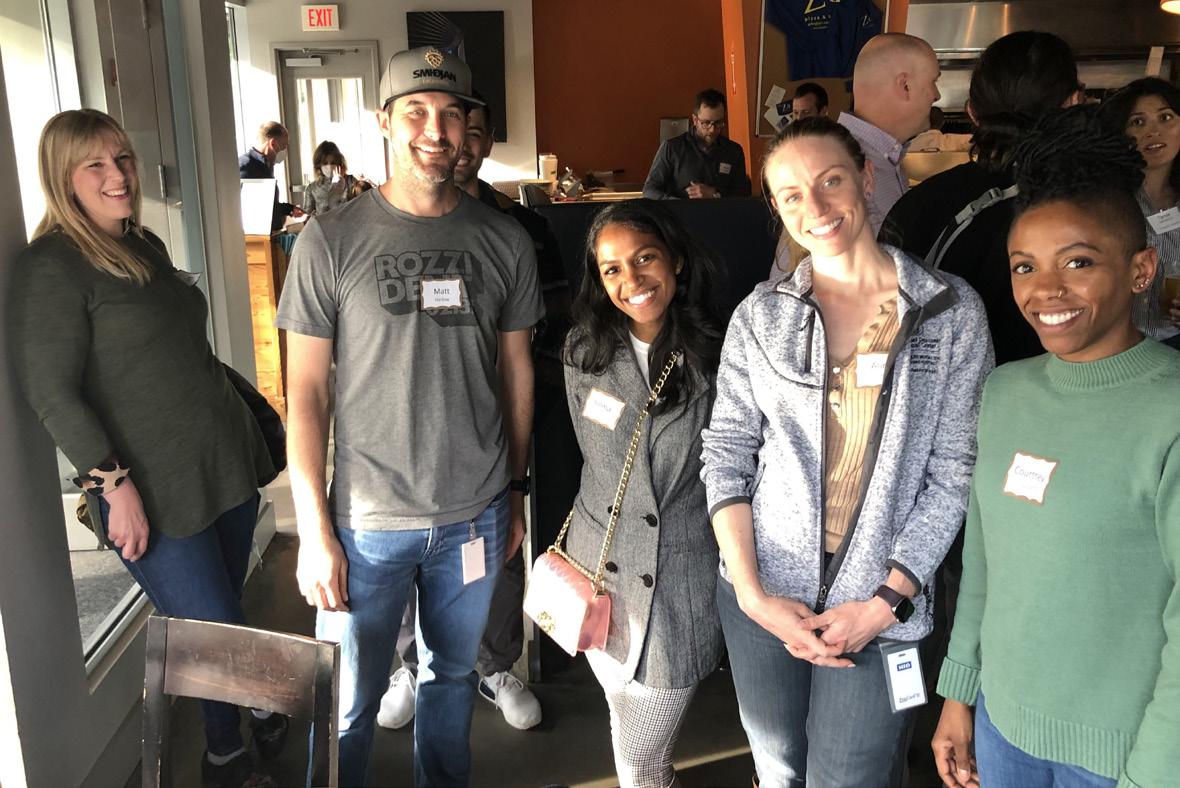
Now a tradition for ASPIRE on the Road trips, alumni gather to meet and greet the trainees visiting their city! This year’s Boston Alumni Networking Happy Hour was a wonderful reunion of former Vanderbilt biomedical trainees. Many alumni in attendance had even been a part of the very first ASPIRE on the Road Boston trip! Current trainees enoyed the laid back opportunity to mingle in person with alumni, while alumni, administrators, and staff in attendance spent time recalling memories and exchanging stories.
Senior Associate Dean, Biomedical Research Education and Training Louise B. McGavock Chair Professor, Department of Cell and Developmental Biology kathy.gould@vanderbilt.edu
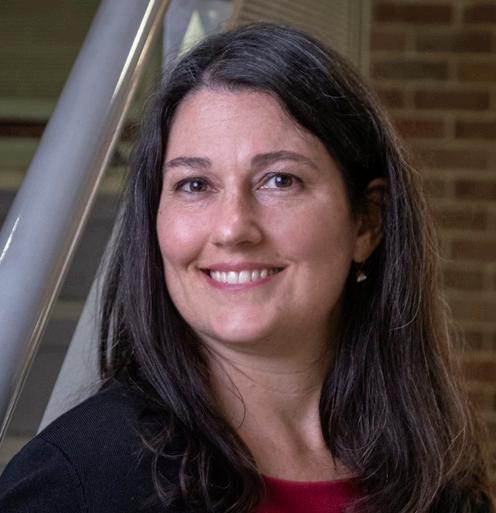
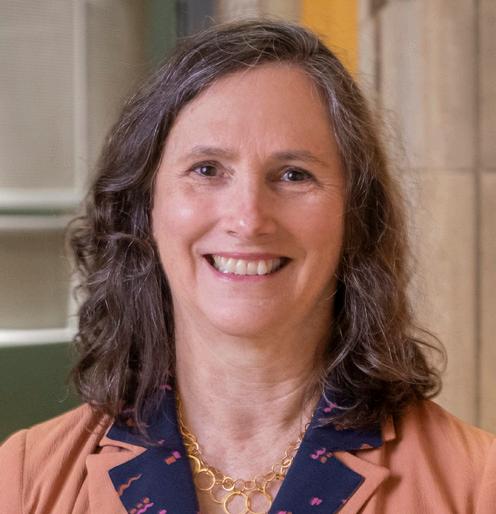
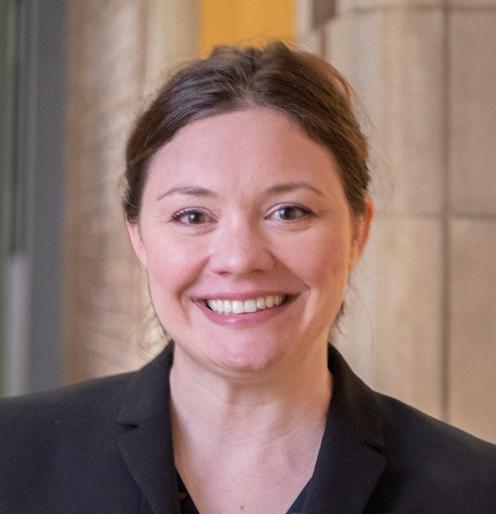
Assistant Dean for Biomedical Career Development
Associate Professor of Medical Education and Administration kim.petrie@vanderbilt.edu
Assistant Dean for Biomedical Career Engagement and Strategic Partnerships
Associate Professor of Medical Education and Administration ashley.brady@vanderbilt.edu
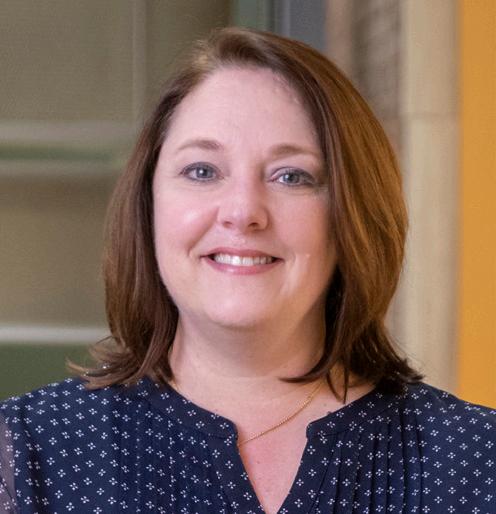
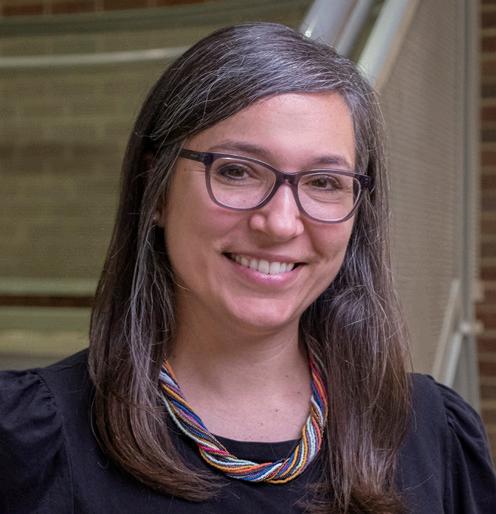
Assistant Director
BRET Office of Career Development ASPIRE Program angela.zito@vanderbilt.edu
Associate Director
BRET Office of Career Development ASPIRE Program
Director, Strategic Affairs and Events kate.stuart@vanderbilt.edu
9:00am Networking from Here to There: Maximizing the Symposium Experience with Ashley Brady, PhD 96
10:00am
Translational Medicine Sophie Thiolloy, PhD
11:00am
Patent Law Amanda Schnepp, PhD
College Teaching Laurie Lemons, PhD Karen Meisch, PhD
Medical Science Liaison Sydney Stoops, PhD
Noon Industry with Pedro Manuel Garcia-Barrantes, PhD
1:00pm
2:00pm
Understanding ORISE: Fellowship and Internship Opportunities for PhDs at National Labs and Government Agencies with Leslie Fox, PhD
Government Administration Mohammed Aiyegbo, PhD
3:00pm
Business Development Lauren Matise Bulsak, PhD
Consulting Siwei He, MD, PhD
Academic Administration and Research Mariena Silvestry-Ramos, PhD Celestial Jones-Paris, PhD
Alumnus Guest
Amanda Hansen, PhD
Matthew Varga,
Allie Greenplate,
Shruti Sharma, PhD
Lehanna Sanders,
Marquicia Pierce,
Sue Lee, PhD
Katie Vowell, PhD
Tiffany Farmer,
Li Yang, PhD
Sudipta Chakraborty, PhD
September 10, 2021 College Teaching 17
Octobe 29, 2021
Science Writing/Project Management 26
Sarah Peterson, PhD, Assistant Professor of Neuroscience at Kenyon College
Dan O’Brien, PhD, Assistant Scientific Director, AbbVie
Julia Jester, associate vice president for federal relations, Association of American Universities
November 1, 2021
Science Policy (Part I) Federal STEM Policy & Advocacy Virtual Seminars: Science Policy Career Paths 102
Damon Dozier, director of government affairs, Materials Research Society
Ashlee Wilkins, PhD, professional staff member, House Science, Space and Technology Committee
Libby O’Hare, PhD, senior principal, Lewis Burke Associates
Amrita Banerjee, PhD, AAAS Science and Technology Policy Fellow
Novemnber 8, 2021
Science Policy (Part II) Federal STEM Policy & Advocacy Virtual Seminars: AAAS Science & Technology Policy Fellows Panel
30
Edward van Opstal, PhD, Lead Scientist, Booz Allen Hamilton
Shilpy Dixit, PhD, Program Director, NIH
Alex Maki, PhD, Social Scientist, FDA
Molly Altman, MD, PhD, Program Manager, Sarah Cannon Solid Tumor GI/GU Program
December 10, 2021 Clinical Research at Sarah Cannon 29
Shanna A. Arnold Egloff, PhD, MSCI, Outcomes Investigator, INSITE (Innovations, Science and Technology)
Carissa Jones, PhD, Senior Program Specialist
January 14, 2022
February 5, 2022
Medical Science Liaison in an International Location 41
Genomics Laboratory Management
March 9, 2022 Business Development
April 15, 2022 Finance and Equity Research 22
Caroline Benoist, PhD, Medical Science Liasion, Arvelle Therapeutics
Ryan Bender, PhD, FACMGG, Director, Molecular Operations, NeoGenomics Laboratories, Inc.
Marquicia Pierce, PhD, MBA, Business Consultant, Michigan Small Business Development Center
Alex Nackenoff, PhD, Equity Research Associate at Raymond
JamesMike Nedelcovych, PhD, Vice President of Equity Research at Cowen, Inc.
Mary van Valkenburg, Analytics and Data Science Program Manager, Instructor, Nashville Software School
Ashley Brady, PhD, Assistant Dean for Biomedical Career Engagement and Strategic Partnerships (Kate Stuart also assisted with sessions)
21 August 2021-March 2022
SciComm for All
Biomedical Research and the Media
Abby Olena, PhD, Alumna 2015, correspondent for The Scientist 9 (capped) Fall 2021
Wayne Wood, writer, editor, assistant director, News and Communications, Vanderbilt University Medical Center 3 (capped) Spring 2022
Jonathan Schmitz, MD, PhD, Assistant Professor, Pathology, Microbiology, and Immunology, VUMC
Ferrin Wheeler, PhD, Medical Director, Cytogenetics, VUMC
5 (capped) Spring 2022
Management and Business Principles for Scientists
Joe Rando, MBA, Associate Professor of the Practice, Managerial Studies, Vanderbilt University 18 (capped) Spring 2022
Maximizing Your Potential: Leading and Managing People, Projects, and Your Career
EQ + IQ = Career Success
Beth Bowman, PhD, Assistant Professor, Medical Education and Administration, Associate Director of Trainee Support 12 Fall 2021
Kate Stuart, Associate Director, BRET Office of Career Development
Ashley Brady, PhD, Assistant Dean for Biomedical Career Engagement and Strategic Partnerships
Fall 2021
3 Spring 2022
Belmont University
BioCentury, Inc.
Commision on Novel Technologies for Neurodevelopment
Decode Health
Teaching Intern (Principles of Biology I)
Data Analyst Interns
Grant Match Maker Intern
Data Science Interns
Grants Administration Working Group Intern Nashville Biosciences
Health Research Alliance (HRA)
Sclerosis Alliance
School of Medicine, Basic Sciences
PMI, Vanderbilt University Medical Center
Business Development Interns
Business Development Intern
Science Communication Interns
Science Communication Interns
Date
October
Date
March
March
March
Attendees Guest
David Cappel, PhD; Jessica Shaklee and L Jarzylo, PRIME
Krystian Kozek, MD, PhD, Flagship Pioneering
Kaitlin Kestenberg, Laura Keigher, Courntey Cocilova, PhD, ADMA Therapeutics
Health led by Erin Shockley, Benjamin Conrad, PhD; Matthew Lewis, and Ashley Lucht
Bluebook with Lindsey Clark,
Foundation with Jerome Jorquin, PhD
Labs with Hari Tanjore and Bettina Kozissnik
August 18, 2021
“StrengthsFinder 101”
IGP Orientation
Kate Stuart, Angela Zito
August 26, 2021
“Overview of NRSAs and the Peer Review Process” Pharmacology Department
Kim Petrie
September 3, 2021
“BRET Office of Career Development & ASPIRE” Simple Beginnings PhD Ceremony Kim Petrie
September 16, 2021
“BRET Career Development ASPIRE Program Resources for International Postdocs”
BRET International Scholar Orientation Ashley Brady
September 21, 2021
“BRET Career Development ASPIRE Program Resources for Postdocs and Fellows” Clinical Pharmacology Fellowship Program Ashley Brady
October 7, 2021
“Digital Presence: Academic Podcasting”
Vanderbilt Digital Commons Kate Stuart
Brandt PD, Varvayanis SS, Baas T, Bolgioni-Smith AF, Alder J, Petrie KA, Dominguez I, Brown AM, et al. A cross-institutional analysis of the effects of broadening trainee professional development on research productivity. PLoS Biology, July 2021.
November 1, 2021
“Career Development for Postdoctoral Fellows and the ASPIRE Program at Vanderbilt”
Vanderbilt University Postdoctoral Association Symposium
Ashley Brady
January 13, 2022
“NRSAs and Fellowships to Fund Your Research Training”
Neuroscience Department Kim Petrie
March 11, 2022
“BRET Office of Career Development ASPIRE Program Resources”
GatherTown Event for accepted IGP applicants Ashley Brady, Kim Petrie
April 14, 2022
“ASPIRE for Career Planning”
Biomedical Informatics Research Colloquium Kim Petrie
May 18, 2022
“Alumni Panel and Career Resources Session” Chemical Biology Program Annual Retreat Ashley Brady
May 25, 2022
“ASPIRE Program Updates”
BRET Office Staff Meeting
Ashley Brady, Kim Petrie
Varadarajan J, Brown AM, Chalkley R. Biomedical graduate student experiences during the COVID-19 university closure. PLoS One, September 2021.
